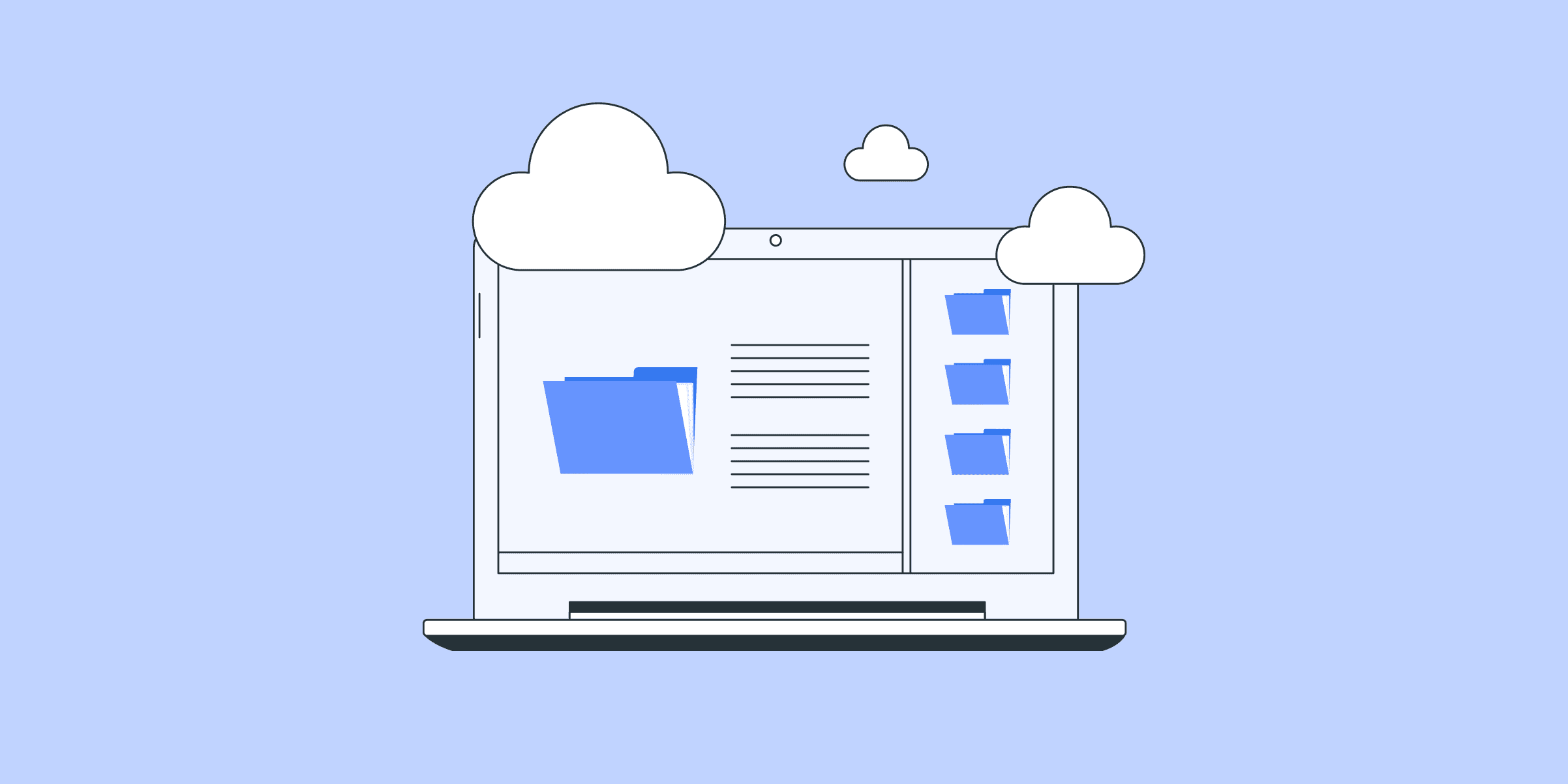住宅代理

How are overseas proxies generally charged?
In the global digital era, overseas proxy services play a crucial role in cross-border e-commerce, data collection, and network security. Overseas proxies provide users with access to the global internet, helping them obtain overseas IP addresses and enabling functions like bypassing geographical restrictions and protecting privacy. However, different overseas proxy providers may adopt various charging models, which can be confusing for users. This article will introduce the general charging methods of overseas proxies, helping you better understand and choose suitable service providers.I. Charging Methods for Overseas Proxies1.Charge Based on Data Usage (Bandwidth)Charging based on data usage is one of the most common methods for overseas proxies. In this model, the cost is calculated according to the actual amount of data (bandwidth) used by the user. Data usage is typically measured in GB (gigabytes). Users can purchase different data packages, such as 5GB, 10GB, 50GB, etc., and the cost will increase with the size of the data package. Charging based on data usage offers flexibility, allowing users to buy data according to their actual needs, thus avoiding waste.2.Charge Based on the Number of IPCharging based on the number of static residential IPis another common payment method for overseas proxies. In this billing model, users are charged based on the number of IP addresses they use, rather than data or bandwidth usage. Each static IP address corresponds to a fixed cost, and users can choose how many IP addresses they need according to their requirements.3.Charge Based on Time DurationCharging based on time duration is a relatively straightforward method. In this model, the cost is calculated based on the length of time the user uses the proxy service. Time can be measured in hours, days, weeks, or months. Users can choose different time period packages, such as 24 hours, 7 days, 30 days, etc., and the cost will increase with the duration of time. Charging based on time duration offers the advantage of allowing users to select the most appropriate time period based on their actual needs, making the service more flexible.4.Fixed Cost ChargingIn addition to charging based on data, bandwidth, or time, some overseas proxy providers also offer fixed-cost packages. In this model, users pay a fixed fee to receive a certain amount of data, bandwidth, or time duration. Fixed-cost packages usually come in different levels or plans, and users can choose the one that suits their needs. The advantage of fixed-cost charging is that users can budget their expenses and enjoy stable service during the specified time.It is important to note that different overseas proxy providers may adopt different charging methods and standards. Some providers may also offer customized pricing based on the specific needs of users. Therefore, when choosing an overseas proxy provider, it is advisable to carefully understand their charging methods, standards, and package options to ensure the selection of a suitable service provider that can deliver stable and reliable proxy services. Additionally, users should also be aware of hidden fees and any potential extra service charges to avoid unnecessary financial losses.II. How to Buy Cheap and High-Quality Overseas Proxies?Purchasing cheap and high-quality overseas proxies is a goal for many users, as it not only helps save costs but also provides better service quality. Here are some methods and recommendations to help you buy cheap and high-quality overseas proxies:1.Look for Discounts and Promotions: Many overseas proxy providers regularly offer promotions and discounts, such as holiday sales, new user discounts, etc. Keeping an eye on these events can help you purchase proxy services at more favorable prices.2.Choose the Right Package: Select the package and plan that best suits your actual needs. If you require only a small amount of data or bandwidth, opt for a lower-priced package to avoid waste.3.Customization: Some proxy providers offer customized service plans tailored to specific customer needs. If you have special requirements, you can contact the provider to inquire about personalized options.4.Be Cautious About Free Proxies: While free proxies may seem attractive, they often come with significant security and stability risks. It is advisable to use free proxies with caution, especially when dealing with sensitive data or private information.5.Choose a Reliable Provider: Reliable proxy providers usually offer stable services and high-quality technical support, ensuring a positive proxy experience. Choosing a reputable provider, even if the price is slightly higher, can provide better service assurance.6.Establish Long-Term Cooperation: Some proxy providers offer discounts and incentives for long-term customers. If you have long-term plans for using proxies, consider building a stable cooperative relationship with the provider.In summary, buying cheap and high-quality overseas proxies requires careful comparison and selection. In addition to price, factors such as proxy stability, speed, service quality, etc., should also be considered to ensure the selection of the most suitable proxy service that meets your needs. Furthermore, exercise caution regarding excessively low prices and free proxies to avoid compromising service quality and security due to price considerations.
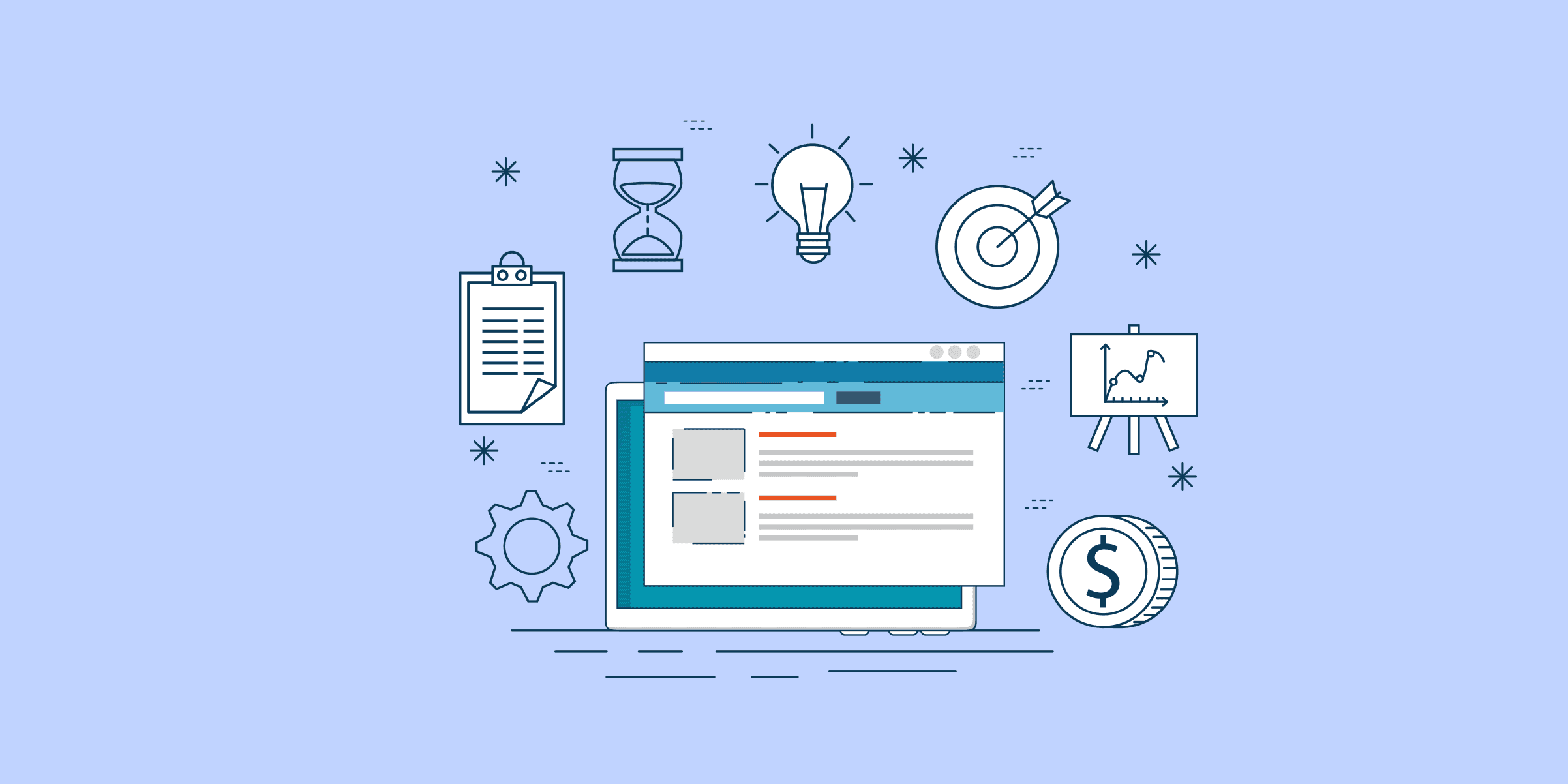
The importance of price monitoring in overseas markets? How can residential proxies assist?
Overseas markets are becoming increasingly important. For fields such as cross-border e-commerce, supply chain management and market competition, it is crucial to understand price trends and changes in overseas markets. And overseas market price monitoring can help companies keep abreast of market dynamics and make reasonable decisions. In this process, residential proxiesplay a key supporting role. In this paper, we will discuss the importance of price monitoring in overseas markets and how residential proxiescan assist enterprises to achieve efficient price monitoring.First, the importance of overseas market price monitoring1. Grasp the competitive advantage in the market: In the overseas market, price is one of the important factors of enterprise competition. Through price monitoring, enterprises can understand competitors' pricing strategies, adjust their prices in time to maintain a competitive advantage.2. Reasonable pricing and profit guarantee: Price monitoring can help enterprises set reasonable prices, avoiding too high a price leading to a drop in sales, or too low a price leading to a lack of profit.3. Market Trend Forecasting: By monitoring and analysing the prices in overseas markets, enterprises can discover the market trend and forecast the price change trend, which can provide a reference basis for future business decisions.4. Discover new opportunities: Price monitoring can also help companies find new market opportunities, such as price fluctuations may mean changes in demand, so as to find new products or market demand.Second, the role of residential proxiesin price monitoring in overseas markets1. Obtaining geo-targeted data: Residential proxiescan provide IP addresses from different geographic locations to help companies conduct geo-targeted price monitoring. By simulating the visits of users from different regions, enterprises can understand the price differences and trends in different regions.2. Blocking Avoidance: When conducting price monitoring, frequent requests may lead to blocking of IP addresses on target websites. Residential proxies can provide a large number of IP addresses to avoid IP blocking and ensure the stability and continuity of monitoring.3. High anonymity to protect privacy: Residential Proxy provides highly anonymous IP addresses to protect users' private information. In overseas market price monitoring, companies may need to visit the target website frequently, and Residential Proxy can ensure that the user's identity is not exposed.4. Efficient data collection: Residential proxy can provide high-speed and stable proxy services to speed up data collection, so that enterprises can obtain price information in overseas markets in a timely manner.Third,how to implement price monitoring in overseas markets?1. Select reliable proxyservice provider: Select proxyservice provider with good reputation and high quality service to ensure stable and reliable proxy.2. Formulate monitoring strategy: According to the needs and goals of the enterprise, formulate a reasonable price monitoring strategy, including the frequency of monitoring, target websites, geographic targeting and so on.3. Data collection and analysis: Collect price data from overseas markets through residential proxiesand analyse them to find out the price trends and changes and provide reference for enterprise decision-making.4. Timely update and adjustment: Market prices change rapidly, and enterprises need to update monitoring data and make corresponding adjustments according to market conditions.Fourth, application Scenarios of Price Monitoring in Overseas Markets1. Cross-border e-commerce: For cross-border e-commerce enterprises, price monitoring can help them understand the competition in different markets, formulate reasonable pricing strategies, and improve sales and profits.2. Supply chain management: By monitoring prices in overseas markets, enterprises can understand the price changes of raw materials and products, optimize supply chain management and reduce costs.3. Market Research: Price monitoring can be used as part of market research to help companies understand consumer demand and purchasing power in different regions.Conclusion:Price monitoring in overseas markets is crucial for companies to compete and make decisions in the global market. Through price monitoring, companies can capitalise on competitive advantages in the market, rationalise pricing, predict market trends and identify new market opportunities. In this process, residential proxiesplay a key supporting role to help enterprises acquire geo-targeted data, circumvent blocking, protect privacy, and achieve efficient data collection. Therefore, choosing a reliable residential proxyservice provider, formulating a reasonable monitoring strategy, and updating and adjusting the monitoring data in a timely manner can help enterprises gain a greater competitive advantage and business value in overseas markets.
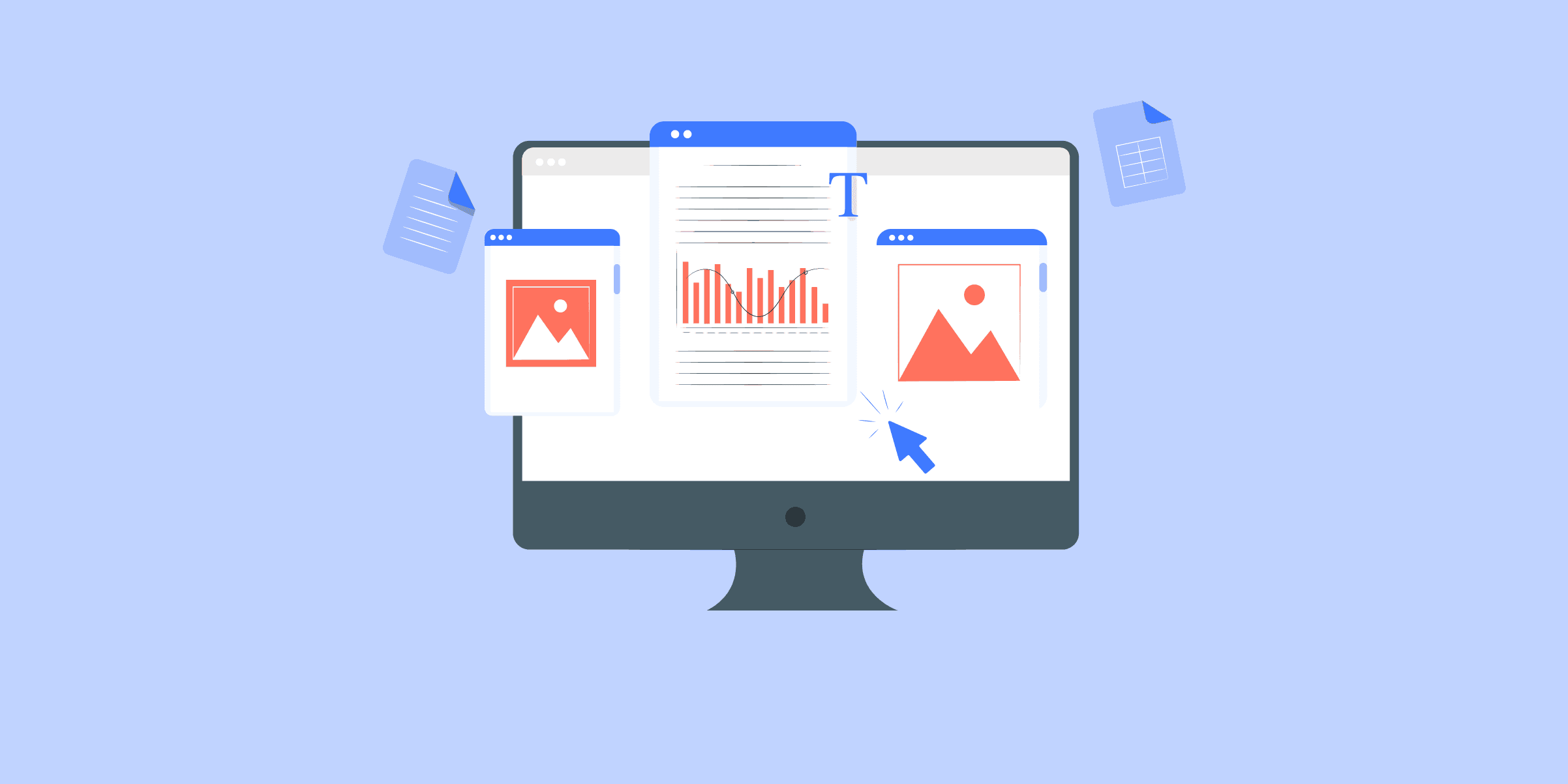
Is Big Data Collection Important? What Are the Benefits of Using IP Proxies to Assist Web Scraping?
Big data is essential in various fields. Big data collection refers to the process of gathering and analyzing large-scale datasets to uncover valuable insights and trends hidden within the data. Big data collection plays a crucial role in market research, competitive intelligence, product optimization, user behavior analysis, and more. However, obtaining a large amount of data requires extensive web scraping activities. When performing web scraping, using IP proxies can offer numerous benefits, facilitating more efficient and stable data collection, and improving the quality and effectiveness of big data collection. This article will introduce the importance of big data collection and the benefits of using IP proxies to assist web scraping.I. The Importance of Big Data Collection1.Market Research: In market research, big data collection helps businesses understand market demands, competition landscapes, and consumer trends. Analyzing large-scale data can reveal potential market opportunities and trends, providing robust support for decision-making.2.Competitive Intelligence: Big data collection enables businesses to gather information about competitors, such as their products, pricing, and marketing strategies. This information allows companies to develop better competitive strategies and maintain a competitive edge.3.Product Optimization: Through big data collection, businesses can gather insights into users' experiences and feedback on products, identify areas for improvement, and enhance user satisfaction and loyalty.4.User Behavior Analysis: Big data collection enables the collection of vast amounts of user behavior data, revealing user interests, purchasing behaviors, and consumption habits. This information facilitates targeted marketing efforts, enhancing marketing effectiveness.5.Public Opinion Monitoring: With big data collection, real-time monitoring of social media platforms, news websites, and other platforms can capture public opinions and sentiments about companies and products. This enables timely responses to crises and negative information.II. The Benefits of Using IP Proxies to Assist Web ScrapingImproved Data Collection Efficiency: Using IP proxies allows running multiple web scraping tasks simultaneously, improving data collection efficiency. Each IP proxy represents a different network user, simulating multiple users accessing the web concurrently, thus speeding up data collection.1.Mitigation of Blocking Risks: During extensive web scraping activities, websites may easily block IP addresses due to frequent access. Using IP proxies enables IP rotation, mitigating the risk of being blocked due to frequent access and ensuring data collection stability and continuity.2.Support for Global Data Collection: Big data collection often requires data coverage from different regions worldwide. By using IP proxies, it becomes possible to obtain IP addresses from various countries and regions, enabling global data collection and improving data comprehensiveness and representativeness.3.Enhanced Data Collection Quality: IP proxies simulate real user behavior, including searches, clicks, and browsing, enabling the acquisition of more authentic and accurate data. This leads to improved data collection quality, ensuring data credibility and effectiveness.4.Protection of Personal Privacy: Extensive big data collection may involve a large number of users' personal information. Using IP proxies helps to conceal real IP addresses, safeguarding user privacy and data security.In conclusion, big data collection plays a crucial role in today's information age. When conducting web scraping activities, using IP proxies can enhance data collection efficiency, stability, and quality, helping businesses achieve their big data collection goals more effectively. IP proxies are indispensable auxiliary tools in modern web scraping operations, providing essential support for businesses to gain a competitive edge in a fiercely competitive market.

Factors Affecting Web Scraping Efficiency - Did You Know?
The explosive growth of information has made data a valuable resource for businesses and researchers. Web scraping, as an automated means of collecting web data, has become increasingly crucial for data acquisition and analysis. However, the efficiency of web scraping directly impacts the speed and quality of data acquisition. This article delves into several important factors affecting web scraping efficiency, helping you optimize performance and improve data collection efficiency.I. Website Structure and Anti-Scraping Mechanisms1.Complexity of Website Structure: The complexity of a website's structure is a significant factor influencing web scraping efficiency. Websites with deep nesting of pages, slow element loading, or numerous dynamic elements require more time for data parsing and extraction, thereby slowing down the crawling speed.2.Anti-Scraping Mechanisms: To prevent excessive access by web scrapers, many websites implement anti-scraping mechanisms, such as IP blocking, CAPTCHAs, and User-Agent detection. These mechanisms restrict the access frequency and speed of web scrapers, leading to decreased scraping efficiency.II. Web Crawler Design and Algorithms1.Concurrency and Asynchrony: Proper design of concurrency and asynchrony can significantly improve web scraping efficiency. By utilizing multi-threading or asynchronous requests, the web scraper can initiate other requests while waiting for a response, making full use of network bandwidth and resources.2.Request Header Optimization: Optimizing request header information can reduce the likelihood of being detected as a web scraper and minimize the risk of being banned by websites. Setting appropriate User-Agent, Referer, and Cookie information helps simulate real user behavior.3.Data Parsing Optimization: Choosing suitable data parsing methods and libraries, along with using efficient parsing algorithms, can speed up data processing and enhance web scraping efficiency.III. Network Environment and Proxies1.Network Bandwidth: The web crawler's network bandwidth directly affects the download speed of data. A wider bandwidth allows for faster download of webpage content, thereby increasing web scraping efficiency.2.Proxy Service Quality: If a web crawler needs to use proxies to access target websites, the quality of proxy services is crucial for web scraping efficiency. Opting for stable and high-speed proxy providers can reduce network latency and improve web scraping efficiency.IV. Data Storage and Processing1.Database Performance: If the web scraper needs to store data in a database, the database's performance affects the speed of data writing and reading. Optimizing database design and configuration and using efficient database engines can improve data storage and retrieval efficiency.2.Data Deduplication: In the collected data, there may be duplicate content. Properly handling data deduplication can reduce storage space usage and improve subsequent data processing efficiency.V. Web Scraping Strategies and Rate Limiting1.Web Scraping Strategy: A well-planned web scraping strategy can avoid putting excessive pressure on the target website, reducing the risk of being banned. The strategy may include setting crawl time intervals, access frequency, and crawl depth rules to ensure that the web crawler behaves in accordance with the target website's rules and avoids interference.2.Anti-Scraping Rules: Some websites define anti-scraping rules in their robots.txt files, instructing search engines and web crawlers not to access certain pages or directories. Web scrapers should comply with these rules to avoid accessing forbidden content and prevent unnecessary bans.VI. Error Handling and Retry Mechanisms1.Error Handling: During web scraping, the web crawler may encounter network errors, connection timeouts, and other issues. Properly handling these errors, such as recording error information and resending requests, can enhance the stability and efficiency of web scraping.2.Retry Mechanism: When web scraping encounters errors, a retry mechanism can be set up to resend requests. However, the retry count and time intervals should be reasonably configured to avoid placing excessive burden on the target website.VII. Proper Scaling and Concurrency Control of Web Scrapers1.Scaling of Web Scrapers: Determining the scale and scope of the web scraper and selecting suitable crawl depth and frequency based on actual needs are essential. Avoiding excessive data collection can prevent putting undue pressure on the target website and improve web scraping efficiency.2.Concurrency Control: Properly controlling the concurrency of the web scraper helps avoid sending too many requests simultaneously, which could overload servers or result in being banned. By regulating concurrency, data collection can proceed stably, reducing the risk of being blocked.In conclusion, factors affecting web scraping efficiency encompass various aspects, including website structure, anti-scraping mechanisms, web crawler design, network environment, proxy quality, data storage, scraping strategies, and concurrency control. Developers need to comprehensively consider these factors, choose appropriate technologies and strategies, and optimize web scraper performance to improve data collection efficiency. Additionally, implementing appropriate web scraping strategies, adhering to anti-scraping rules, optimizing data parsing algorithms, and selecting high-quality proxy service providers are also crucial steps to enhance web scraping efficiency. Through continuous optimization and adjustments, developers can maximize web scraping efficiency, obtain desired data more quickly, and gain a competitive advantage in data analysis and decision-making. Therefore, for enterprises and individuals utilizing web scraping technology for data collection, a deep understanding and optimization of factors impacting web scraping efficiency are critical to enhancing data acquisition efficiency and quality.

Avoid Account Bans! Rotating IP Proxies: The Secret Weapon for Boosting Social Media Marketing Effectiveness
Social media has become a crucial channel for businesses to expand their market and promote their products. However, frequent posting on social media platforms, especially when disseminating information across different regions, can easily trigger sensitive responses from the platforms, leading to account bans. To avoid this issue, an increasing number of businesses are turning to rotating IP proxies as a secret weapon for social media marketing, effectively enhancing marketing effectiveness. This article will explore the role of rotating IP proxies in social media marketing and demonstrate their importance through specific examples.I. Challenges in Social Media MarketingSocial media, as an effective tool for businesses to promote their brands and products, has attracted significant attention. However, social media platforms strictly limit frequent account operations to ensure user experience and data security. If a business engages in activities like frequent content posting, likes, comments, etc., within a short period, the social media platform might deem it as spam behavior, leading to account bans. Additionally, for businesses targeting international markets, they may face geographical restrictions that hinder content dissemination to specific regions, limiting the effectiveness of marketing efforts.II. The Role of Rotating IP Proxies in Social Media MarketingRotating IP proxies are a technology that rapidly switches between different IP addresses in a short period, enabling businesses to simulate diverse user behaviors on social media, thus reducing the risk of account bans. By using rotating IP proxies, businesses can achieve the following goals:1.Enhance Account SecurityRotating IP proxies can hide the real IP address, reducing the risk of social media platforms identifying the account. Since the IP address is a crucial indicator for account identification, using different IP addresses can increase account security and decrease the probability of getting banned.2.Bypass Geographical RestrictionsFor businesses that need to promote their products across different regions, using rotating IP proxies allows them to post content, likes, comments, and other activities in various locations, expanding the marketing coverage and attracting more potential customers.3.Increase Activity LevelThrough rotating IP proxies, businesses can diversify account activities, boosting account engagement and enhancing exposure and influence on social media platforms.4.Balance Account LoadBy using rotating IP proxies, businesses can distribute marketing tasks across multiple IP addresses, reducing the workload on a single IP address. This can lower the risk of platform bans while improving the stability and continuity of social media accounts.III. Success Stories: How Businesses Use Rotating IP Proxies to Enhance Social Media Marketing Effectiveness1.Instagram Marketing CaseA fashion brand aimed to promote its new clothing collection on Instagram and attract a global young audience. However, due to frequent content posting and a large number of likes, the brand's account was flagged as a spam account by Instagram and got banned. Recognizing the issue, the brand started using rotating IP proxies, switching between different IP addresses to simulate diverse user actions. Through this approach, the brand's account was reinstated, and the new clothing collection was successfully promoted, garnering substantial user attention.2.Facebook Ad Campaign CaseA B2B enterprise wanted to run a global ad campaign on Facebook, but Facebook's restrictions on advertising in specific regions hindered the enterprise's plans. The company decided to use rotating IP proxies to switch IP addresses in different regions, achieving worldwide ad coverage. Through this strategy, the company's ad reach significantly expanded, attracting more global customers' attention, and successfully expanding its global market.IV. ConclusionAccount bans are a common challenge in social media marketing, and using rotating IP proxies can effectively mitigate this issue while enhancing marketing effectiveness. By hiding real IP addresses, bypassing geographical restrictions, and increasing account engagement, rotating IP proxies offer businesses greater flexibility and security in their social media marketing efforts. When selecting proxy service providers, stability, global coverage, privacy protection, and technical support are essential factors to consider. By utilizing the right rotating IP proxy service provider, businesses can fully leverage the advantages of social media marketing, attracting more target customers, enhancing brand influence, and achieving greater commercial value.
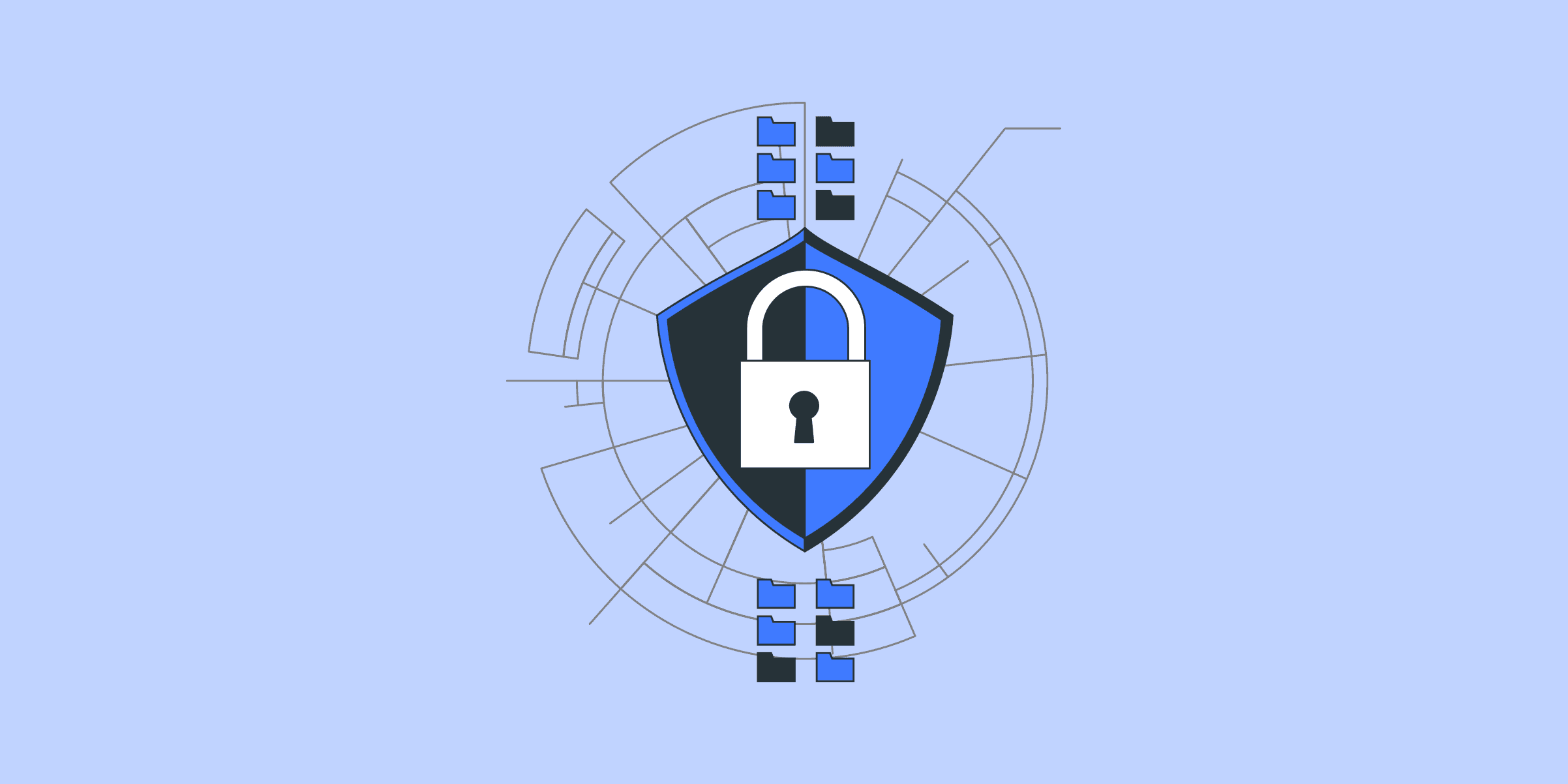
Challenges and Solutions When Using Residential Proxies
Overseas residential proxies are essential tools widely used for data collection, web scraping, SEO optimization, and other business activities. However, using residential proxies may present certain challenges and issues. This article delves into the problems users might encounter when using residential proxies and offers solutions to help users make the most of the advantages of residential proxies and ensure smooth business operations.I. Problem 1: IP BlockingFrequent data collection or access through residential proxies may lead to the target website identifying the residential proxy's IP address as malicious, resulting in IP blocking and denied access.Solution:1.IP Rotation: Employ different residential proxy IP addresses to rotate requests, avoiding excessively frequent access to the target website within a short period.2.Set Access Interval: During data collection or access, set a reasonable access interval to avoid overly rapid request frequency.3.Use Proxy Pools: Establish a proxy IP pool to promptly detect and replace blocked IP addresses, ensuring the stability and availability of proxy IP addresses.II. Problem 2: Slow Access SpeedAs residential proxies connect through genuine residential networks, the access speed may be slow, affecting the efficiency of data collection and business operations.Solution:1.Choose High-Quality Proxy Providers: Opt for providers that offer high-speed and stable proxy services to ensure fast and stable proxy connections.2.Optimize Proxy Settings: Configure proxy settings reasonably to enhance the efficiency of proxy connections and data transmission.3.Pre-test Proxy Speed: Conduct proxy speed tests before formal usage to choose the most suitable proxy service that meets your specific needs.III. Problem 3: Inaccurate IP GeolocationSome residential proxy providers might fail to accurately simulate IP addresses from different geographical locations, resulting in inaccurate geolocation, which can affect regional targeting and data collection.Solution:1.Choose Proxy Providers with IP Geolocation Functionality: Select residential proxy providers that offer IP geolocation functionality to accurately simulate IP addresses from different regions.2.Verify Geolocation Information: When using proxies, verify geolocation information to ensure the accuracy and reliability of the proxy IP addresses' geographical locations.IV. Problem 4: Security RisksWhen using residential proxies, users might face security risks, such as IP address abuse or information leakage.Solution:1.Choose Trusted Proxy Providers: Select residential proxy providers with good reputation and reviews to ensure the security and reliability of proxy services.2.Set Access Permissions: During proxy usage, set access permissions to restrict access to authorized personnel only, ensuring information security.3.Regularly Change Proxy IP Addresses: Periodically change proxy IP addresses to prevent abuse by malicious individuals and protect the security of businesses and users' information.V. Problem 5: Proxy Service StabilitySome residential proxy providers might experience service instability, leading to frequent interruptions and connection errors that disrupt normal business operations.Solution:1.Choose Stable Proxy Providers: Select residential proxy providers with high stability and excellent service quality to ensure reliable and stable proxy services.2.Regularly Monitor Proxy Status: Periodically monitor proxy status to promptly identify and resolve proxy service issues, ensuring business continuity and stability.VI. Problem 6: Proxy Service CostsUsing residential proxy services may involve certain costs, which could be a concern for some small to medium-sized enterprises or individual users.Solution:1.Plan Usage Frequency Reasonably: Based on business needs, plan the frequency of using proxy services reasonably to reduce cost expenditures.2.Seek Cost-Effective Proxy Providers: Look for residential proxy providers that offer cost-effective services, striking a balance between cost and service quality.Conclusion:Using residential proxies is an important aspect of many businesses. However, users may encounter challenges such as IP blocking, slow access speed, inaccurate IP geolocation, security risks, proxy service stability, and proxy service costs. By addressing these challenges properly, selecting stable and reliable proxy providers, configuring proxy parameters and access intervals sensibly, and enhancing security measures, users can fully leverage the advantages of residential proxies, ensure smooth business operations, improve website ranking and traffic, and achieve better commercial value and competitive advantages.
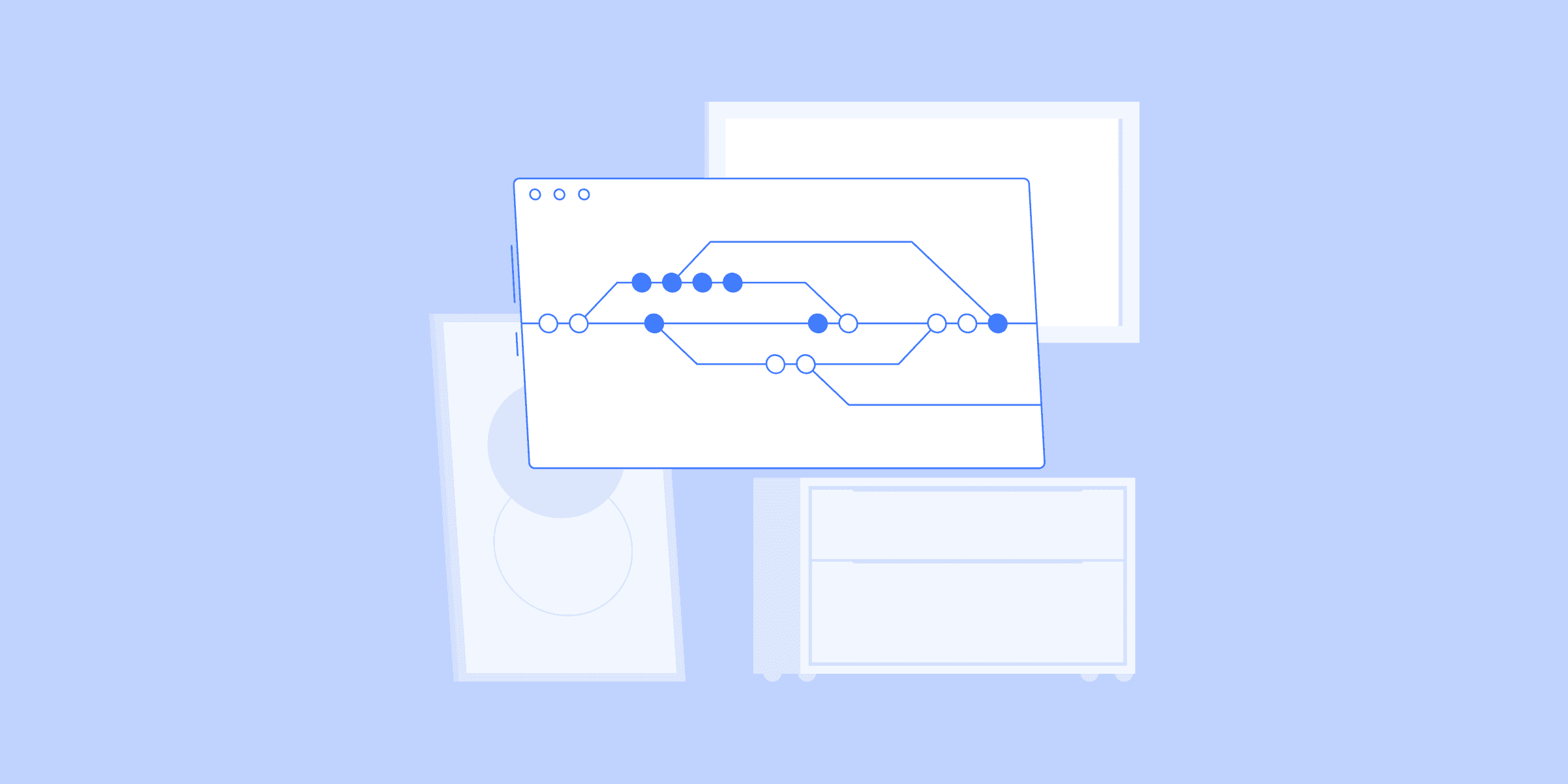
What Are the Benefits of High-Purity Residential IP Addresses for Web Scraping?
Users engaged in large-scale data collection are well aware that in this rapidly evolving internet age, web scraping plays a crucial role in various fields such as data retrieval, market research, and competitive intelligence. However, web scraping activities may face restrictions from websites' anti-scraping mechanisms, resulting in slow access speeds, inaccurate data, and even the risk of being blocked. To address these issues, high-purity residential IP addresses have become a powerful tool for web scraping activities. This article will explore the seven major benefits of high-purity residential IP addresses for web scraping.1.Enhanced Data Accuracy and Integrity:High-purity residential IP addresses are typically associated with real users, and their web browsing behavior resembles that of genuine users. Compared to data center proxies or shared IP proxies, residential IP addresses experience fewer interruptions from websites' anti-scraping mechanisms, allowing for more accurate data retrieval and ensuring data integrity. For example, an online retailer may restrict access frequency based on the source region of IP addresses. Using residential IP addresses can avoid being blocked due to frequent access and improve data accuracy.2.Reduced Risk of Access Blocking:Many websites implement anti-scraping measures, including blocking IP addresses with frequent access. By using high-purity residential IP addresses, the risk of access blocking is minimized since these IP addresses are not misused by other users and are not subject to the risks associated with shared IP addresses. For instance, if a web scraper uses a data center proxy to access a website, and other users of the same data center engage in frequent access or improper behavior, it could lead to the entire IP range of the data center being blocked, affecting the web scraper's normal operations.3.Improved Access Speed:High-purity residential IP addresses typically have lower latency and higher access speeds. This is because residential IP addresses are provided by real users with relatively good network connections. In contrast, data center proxies may exhibit higher latency when accessing webpages, reducing the efficiency of web scraping. For large-scale data collection tasks, fast access speed is critical, and high-purity residential IP addresses can significantly enhance the performance of web scrapers.4.Enhanced Stealth for Web Scrapers:Web scrapers often prefer to operate as discreetly as possible to avoid detection and blocking by websites. High-purity residential IP addresses offer significant advantages in this regard, as these IP addresses correspond to real users and exhibit similar browsing behavior to ordinary users, making it difficult for websites to easily identify them as web scrapers. In contrast, web scrapers using data center proxies may be more easily detectable by websites, increasing the risk of being blocked.5.Increased Success Rate of Data Collection:High-purity residential IP addresses can increase the success rate of data collection. As these IP addresses are not misused by other users and are not subject to the risk of being blocked, they are more likely to obtain the required data when accessing target websites. Web scrapers using data center proxies or shared IP proxies may need to frequently change IP addresses or face the risk of being blocked, resulting in a lower success rate of data collection.6.Protection of Web Scraper Privacy and Security:Ensuring the privacy and security of web scrapers is equally important during web scraping activities. High-purity residential IP addresses are provided by real users, thus not exposing the true identity of web scrapers. In contrast, web scrapers using shared IP proxies or data center proxies may be at risk of misuse by other users, leading to security vulnerabilities. In some sensitive data collection tasks, the use of high-purity residential IP addresses can effectively protect the privacy and security of web scrapers.7.Improved User Experience:High-purity residential IP addresses typically do not interfere with the normal operation of websites, thus enhancing the experience of genuine users. In contrast, web scrapers using data center proxies or shared IP proxies may increase the load on websites, slowing down the website's response time and affecting the experience of genuine users. By using high-purity residential IP addresses, web scraping activities can better coordinate with websites, ensuring the normal functioning of websites and increasing genuine user satisfaction.In conclusion, high-purity residential IP addresses offer numerous benefits for web scraping, including enhanced data accuracy and integrity, reduced risk of access blocking, improved access speed, enhanced stealth for web scrapers, increased success rate of data collection, protection of web scraper privacy and security, and improved user experience. For web scraping activities with high data demand and privacy protection requirements, choosing residential IP proxies over data center proxies or shared IP proxies is a wiser choice.

Forward Proxy vs Reverse Proxy, Do You Know the Difference?
Proxy servers play a significant role in network applications and data transmission by helping users conceal their real IP addresses, thereby enhancing network security and access speed. Forward proxy and reverse proxy are two common types of proxies, each with distinct characteristics and application scenarios. This article will provide a detailed explanation of forward proxy and reverse proxy, covering their definitions, features, working principles, and application scenarios, to help users better understand the different types and purposes of proxy servers.I. What are Forward Proxy and Reverse Proxy?1.Forward Proxy:A forward proxy is a proxy server located between the client and the target server. When a client needs to access a target server, the request first goes through the forward proxy server, which then forwards the request to the target server. The forward proxy hides the client's real IP address, and the target server can only see the IP address of the proxy server without knowing which client initiated the request.2.Reverse Proxy:A reverse proxy is a proxy server located between the target server and the client. When a client sends a request to the target server, the request first goes through the reverse proxy server, which then forwards the request to the target server. The reverse proxy hides the real IP address of the target server, and the client can only see the IP address of the proxy server without knowing the actual address of the target server.II. Characteristics and Advantages of Forward Proxy and Reverse Proxy1.Characteristics and Advantages of Forward Proxy:① Hides Client IP: A forward proxy conceals the client's real IP address, protecting the client's privacy and security.② Access Control: Forward proxy allows for access control and filtering of client requests, enhancing network security.③ Bypassing Restrictions: A forward proxy can bypass network restrictions, enabling access to blocked websites and resources.④ Caching for Acceleration: Forward proxy can cache requested data, improving access speed and performance.2.Characteristics and Advantages of Reverse Proxy:① Hides Target Server IP: A reverse proxy hides the real IP address of the target server, enhancing server security.② Load Balancing: Reverse proxy can distribute requests to multiple target servers based on load conditions, achieving load balancing.③ Caching for Acceleration: Reverse proxy can cache response data from the target server, reducing server load and improving access speed.④ SSL Encryption: Reverse proxy can provide SSL encryption for communication between clients and the target server, enhancing data transmission security.III. Working Principles of Forward Proxy and Reverse Proxy1.Working Principle of Forward Proxy:When a client needs to access a target server, the client's request is sent to the forward proxy server first. The forward proxy server forwards the request to the target server and returns the target server's response data to the client. Throughout this process, the target server is unaware of the client's identity and only knows that the request came from the forward proxy server.2.Working Principle of Reverse Proxy:When a client sends a request to the target server, the request first goes to the reverse proxy server. The reverse proxy server then uses load balancing algorithms to forward the request to one of the multiple target servers. The target server processes the request and sends the response data back to the reverse proxy server, which, in turn, sends the response data to the client. Throughout this process, the client is unaware of the actual target server, only knowing that the request was handled by the reverse proxy server.IV. Application Scenarios of Forward Proxy and Reverse Proxy1.Application Scenarios of Forward Proxy:① Bypassing Restrictions: In some regions or network environments, forward proxy can help users bypass network restrictions and access blocked websites and resources.② Access Control: Enterprises and organizations can use forward proxy to control and filter employees' internet access, enhancing internal network security.③ Anonymous Access: Forward proxy can help users access target servers anonymously, hiding their real IP addresses and protecting their privacy.④ Accelerated Access: Forward proxy can cache requested data, improving access speed and performance.2.Application Scenarios of Reverse Proxy:① Load Balancing: In high-traffic network environments, reverse proxy can achieve load balancing by distributing requests to multiple target servers, improving server performance and stability.② SSL Encryption: Reverse proxy can provide SSL encryption for communication between clients and target servers, ensuring data transmission security.③ Accelerated Access: Reverse proxy can cache response data from target servers, reducing server load and improving access speed.V. ConclusionForward proxy and reverse proxy are two common types of proxies that play essential roles in network applications and data transmission. Forward proxy, located between the client and the target server, can hide the client's real IP address, bypass restrictions, implement access control, and provide caching for acceleration. Reverse proxy, located between the target server and the client, can hide the real IP address of the target server, perform load balancing, offer SSL encryption, and provide caching for acceleration. Choosing the appropriate proxy type based on different application scenarios and requirements can enhance network security and access speed. We hope this article provides comprehensive guidance and answers regarding forward proxy and reverse proxy, including their distinct features and uses in network applications.

Why is Residential Proxy Essential for Web Scraping Businesses?
Data holds paramount importance for both businesses and individual users. As an efficient means of acquiring data from the web, web scraping technology has gained increasing attention and application. However, with the constant enhancement of network security and website anti-scraping mechanisms, web scraping businesses face numerous challenges. In such a scenario, choosing residential proxies as an aid to web scraping becomes a wise choice. This article will explore the reasons why web scraping businesses must opt for residential proxies and elaborate on the advantages and applications of residential proxies, providing comprehensive guidance and advice for businesses and individuals.I. Challenges and Issues in Web Scraping Businesses1.IP Blocking: Websites often block IP addresses that engage in frequent or abnormal data retrieval to prevent malicious scraping activities, leading to hindrances in obtaining data.2.Access Speed Limitation: Frequent access to the same website from a single IP may trigger access speed limitations, causing a slowdown in data acquisition.3.Data Collection Difficulty: Some websites employ anti-scraping techniques to protect their data, making data collection more challenging.II. Advantages of Residential Proxies in Web Scraping BusinessesResidential proxies, as a high-anonymity and authentic proxy type, possess the following advantages, making them suitable for assisting web scraping businesses:1.High Credibility: Residential proxies communicate using real residential users' IP addresses, and the communication source can be verified, providing a higher level of credibility.2.IP Concealment and Rotation: Utilizing residential proxies can hide the real IP address and rotate IPs to evade website bans, ensuring stable data retrieval.3.Simulate Human Visits: Residential proxies simulate the browsing behavior of real users, reducing the likelihood of websites identifying them as scrapers.4.Circumvent Anti-Scraping Mechanisms: Residential proxies' IPs possess a certain level of randomness, enabling them to bypass websites' anti-scraping strategies and enhance data collection efficiency.III. Application Scenarios of Residential Proxies in Web Scraping BusinessesResidential proxies find extensive application in web scraping businesses, including but not limited to the following aspects:1.Data Collection: Residential proxies facilitate large-scale data collection, avoiding being banned by target websites and ensuring data accuracy and completeness.2.Price Monitoring: In the e-commerce industry, monitoring and analyzing competitor prices are common, and residential proxies can assist in the collection and monitoring of price data.3.Search Engine Optimization (SEO): For understanding a website's inclusion status on search engines, residential proxies can aid in monitoring search engine rankings and inclusion status.4.Sentiment Analysis: In the field of sentiment analysis, residential proxies can be used to retrieve comments and conduct sentiment analysis from social media and news websites.IV. Considerations for Using Residential Proxies in Web Scraping BusinessesWhen using residential proxies to aid web scraping businesses, users should pay attention to the following aspects:1.Proxy Quality: Select reputable residential proxy service providers to ensure proxy speed and stability.2.Frequency Control: Set an appropriate access frequency to avoid imposing excessive access pressure on target websites.3.Compliance: When using residential proxies for web scraping, it is crucial to comply with local laws and regulations and refrain from engaging in illegal activities.4.Scraping Strategies: Ensure that scraping strategies are reasonable, avoiding imposing excessive access pressure on target websites and disrupting their normal operations.V. ConclusionWeb scraping businesses play a crucial role in data acquisition, but they face significant challenges and issues. Opting for residential proxies as an aid to web scraping is a prudent decision, as residential proxies offer high credibility, IP concealment and rotation, simulation of human visits, and the ability to circumvent anti-scraping mechanisms. They are suitable for various scenarios, such as data collection, price monitoring, SEO, and sentiment analysis. However, when using residential proxies to assist web scraping businesses, users should pay attention to proxy quality, frequency control, compliance, and scraping strategies to ensure the safety and stability of proxy usage. We hope this article provides comprehensive guidance and advice for businesses and individuals regarding the assistance of web scraping businesses using residential proxies.
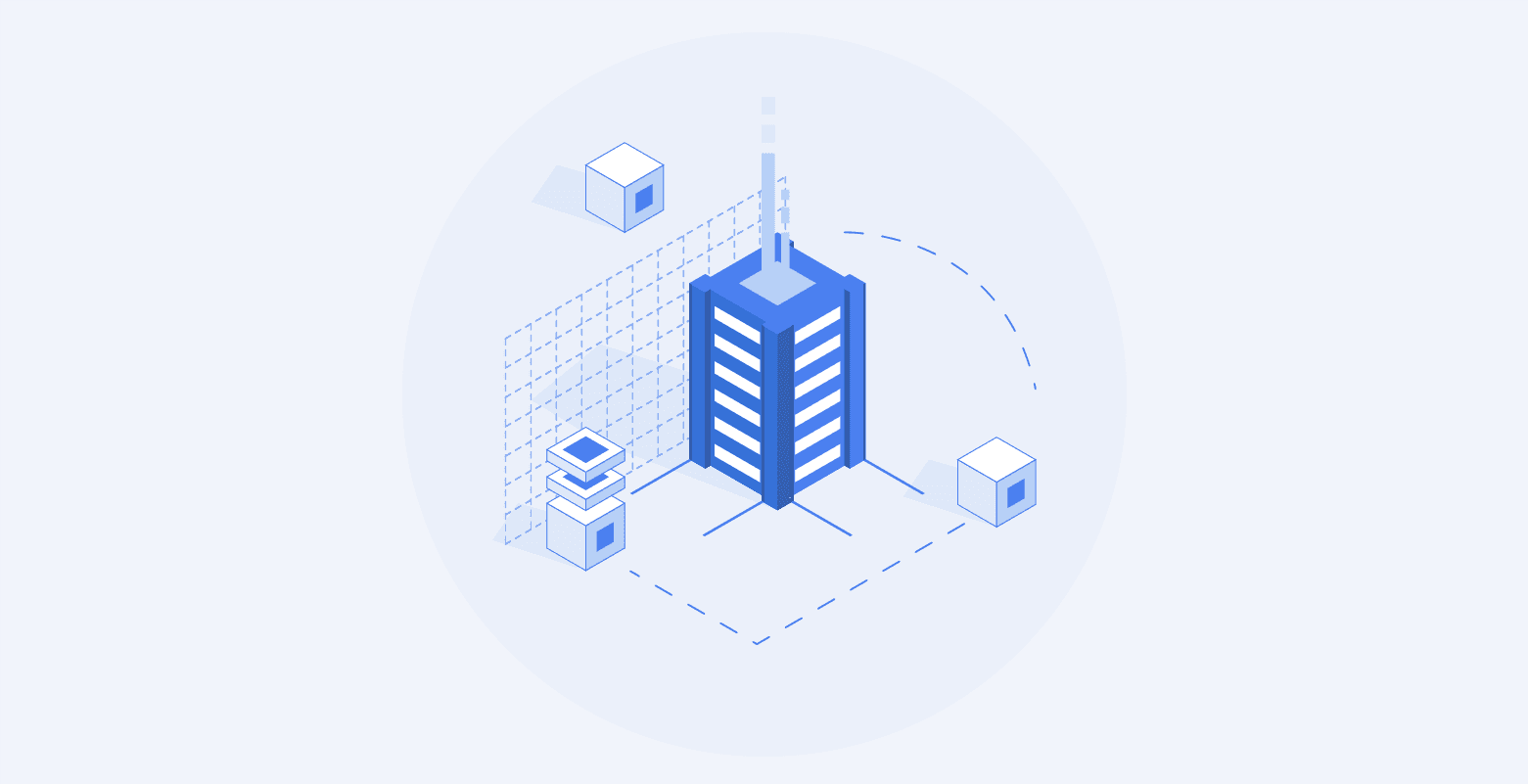
What Does Unlimited Bandwidth in Residential Proxy Mean? Is It Important?
In the realm of web applications, proxy servers play a vital role, and residential proxies, as a type of highly anonymous and authentic proxy, have gained increasing attention from users. During the selection of residential proxies, the term "unlimited bandwidth" often arises. So, what does unlimited bandwidth in residential proxies mean? How significant is it in proxy services? This article will thoroughly explain the meaning of unlimited bandwidth in residential proxies and explore its importance in proxy services to help users better understand residential proxies and make informed choices.I. What Does Unlimited Bandwidth in Residential Proxies Mean?In the context of proxy services, bandwidth refers to the data transfer capacity between the proxy server and the user. The larger the bandwidth, the faster the data transfer speed, resulting in a better user experience while accessing the internet. Unlimited bandwidth in residential proxies means that the proxy service provider offers residential proxy servers without bandwidth restrictions on data transmission. This allows for a high-speed and stable internet connection, enabling users to fully enjoy a smooth online experience without worrying about insufficient bandwidth leading to delays or speed reductions.II. The Importance of Unlimited Bandwidth in Residential Proxies1.Ensuring User Experience: User experience is of paramount importance in web applications. Unlimited bandwidth ensures unrestricted data transfer speed between the proxy server and the user, enabling users to access target websites at high speed and enjoy a seamless online experience.2.Efficient Data Scraping: For users engaged in tasks like web scraping or data collection, unlimited bandwidth guarantees high-speed data transmission for large-scale data, thereby improving data collection efficiency and accuracy.3.Enhanced Work Efficiency: For companies or organizations, having residential proxies with unlimited bandwidth means that employees can access external resources and websites more quickly, thereby enhancing work efficiency.4.Smooth Multimedia Content Viewing: For users who require viewing high-definition videos, streaming music, or playing online games, unlimited bandwidth ensures smooth playback of streaming content, providing a better entertainment experience.III. Considerations When Choosing Residential Proxies1.Bandwidth Commitment: When selecting a residential proxy service provider, pay attention to whether they promise unlimited bandwidth. This can be confirmed by checking the provider's official website or inquiring with customer support.2.Proxy Server Geographical Location: Opting for residential proxy servers that are closer to the target websites can enhance data transfer speed and further optimize the user experience.3.Proxy Server Stability: Unlimited bandwidth can only be effective if the proxy server operates stably. Therefore, choose a provider with higher stability.4.Bandwidth Sharing: Some residential proxy service providers may share bandwidth during peak hours, leading to reduced speed. Users should be aware of such scenarios.IV. Is Unlimited Bandwidth in Residential Proxies Important?Unlimited bandwidth in residential proxies is indeed crucial for user experience and business efficiency. In the current era of rapid internet development and increasing data demands, bandwidth restrictions could result in slow network access, inefficient data collection, and even disrupt normal business operations for companies. Having residential proxies with unlimited bandwidth can meet users' demands for high-speed access and data transmission, provide stable proxy services, and ensure users' satisfactory network experience and work efficiency.V. How to Choose the Right Residential Proxy Service Provider?When selecting the appropriate residential proxy service provider, users need to consider several factors:1.Unlimited Bandwidth Commitment: Ensure that the service provider explicitly promises unlimited bandwidth and can meet users' actual needs.2.Stability and Reliability: Choose a provider with stable networks and high reliability to avoid unstable or interrupted proxy services due to network issues.3.Geographical Location: Select residential proxy servers located close to the target websites to reduce data transfer latency and improve access speed.4.Data Privacy Protection: Ensure the service provider has stringent data privacy protection measures to prevent user data leakage.5.Pricing and Packages: Choose the right price and package according to individual needs to ensure the best cost-effectiveness.VI. ConclusionUnlimited bandwidth in residential proxies means that the proxy service provider can offer high-speed and stable internet connections, providing users with excellent internet experiences and efficient data transmission. When choosing a residential proxy service provider, users need to consider factors such as bandwidth commitment, stability, geographical location, data privacy protection, and pricing to select the most suitable provider that meets their needs. The significance of unlimited bandwidth in residential proxies is evident as it ensures user experience, improves work efficiency, and facilitates efficient data scraping. This article aims to help users better understand the meaning and importance of unlimited bandwidth in residential proxies, providing comprehensive guidance and advice to users.

What are the Differences Between Web Scraping and Web Crawling?
With the development of the internet and the explosive growth of information, data collection and processing have become indispensable needs for businesses and individuals. In this context, web scraping and web crawling have become two common methods of data collection. Although these two methods may seem similar, there are significant differences in their approaches and objectives. This article will provide you with a detailed introduction to the definitions of web scraping and web crawling, explain their differences, and explore how overseas residential proxies can optimize these two data collection methods.I. Definition of Web ScrapingWeb scraping, also known as web data extraction or web crawling, is an automated method of data collection. It involves sending HTTP requests to target websites, retrieving specific data information, and extracting the data from web pages. The purpose of web scraping is to obtain specific data, such as news articles, product information, etc., and save this data to local files or databases. Web scraping is commonly used in the construction of search engines, news aggregation websites, price comparison websites, and other business fields.II. Definition of Web CrawlingWeb crawling, also known as web spider or web bot, is a process of automatically accessing web pages on the internet and collecting information. The objective of web crawling is to gather as much data as possible and extract useful information from it. Unlike web scraping, web crawling focuses more on comprehensive data collection rather than specific data. Web crawling is commonly used in data mining, market research, competitive intelligence, and other business fields.III. Differences Between Web Scraping and Web Crawling1.Different Objectives: The main objective of web scraping is to obtain specific data information, while web crawling emphasizes collecting as much data as possible.2.Different Scope: Web scraping usually targets specific web pages or websites, while web crawling traverses the entire internet to collect a large amount of information.3.Different Frequencies: Web scraping has a relatively lower frequency, primarily aimed at acquiring target data, while web crawling has a higher frequency with the main goal of comprehensive data collection.4.Different Data Processing: Web scraping focuses more on data extraction and storage, while web crawling emphasizes data processing, analysis, and mining.IV. Application of Overseas Residential Proxies in Web Scraping and Web CrawlingBoth web scraping and web crawling require frequent sending of HTTP requests to obtain data. However, a large number of requests can trigger anti-scraping mechanisms on target websites, leading to restrictions or bans on access. To address this issue, using overseas residential proxies has become an effective method to optimize data collection.Overseas residential proxies provide users with IP addresses from various locations globally, enabling IP address rotation and camouflage. By using overseas residential proxies, web scraping and web crawling can avoid being banned or restricted. The random switching and camouflage capabilities of proxy IP addresses make it difficult for target websites to identify web scraping behavior, ensuring stable data collection.Additionally, overseas residential proxies can geolocate IP addresses, simulating user visits from different regions to target websites. In web crawling, data from specific regions may have special value, and using overseas residential proxies can obtain more comprehensive data information globally, providing greater support for data mining and market research.In conclusion, although both web scraping and web crawling are methods of data collection, they have significant differences in their objectives, scope, frequency, and data processing. Web scraping is mainly used to obtain specific data, while web crawling focuses on comprehensive data collection. By leveraging overseas residential proxies, you can optimize the data collection process of web scraping and web crawling, avoid being banned or restricted, and obtain more comprehensive and accurate data information, enabling businesses and individuals to gain an advantage in a competitive market. We strongly recommend using overseas residential proxies when conducting web scraping and web crawling to ensure smooth data collection and data accuracy.

What are the basics you need to know about private proxy?
In today's digital age, with the growth of the internet, data collection and processing has become an indispensable need for businesses and individuals. And private proxies serve as an effective tool to help users achieve more on the web and ensure the privacy and security of online activities. This article will provide you with a detailed introduction to the working principle of private agents, the benefits of using private agents and the target customer groups of private proxies to help you better understand and utilize private proxies.First, the working principle of private proxyPrivate proxy is a network service, which acts as an intermediary between users and the Internet. When a user sends a request through a private proxy, the proxy server forwards the request to the target website and then returns the website's response to the user. In this way, the target website can only see the IP address of the proxy server and cannot directly know the real IP address of the user. This achieves privacy protection and anonymity for the user.Second, the benefits of using a private proxy1. Privacy protection: Private proxies allow users to hide their real IP addresses on the Internet, thus protecting personal privacy and identity security. Especially in activities that require personal information protection, such as visiting sensitive websites and making online payments, private proxies can effectively prevent personal information from being leaked.2. Bypass geographic restrictions: Many websites and services restrict access based on a user's IP address, resulting in users in certain regions being unable to access specific content. By using a private proxy, users have the option of connecting to a proxy server located in another region, bypassing geo-restrictions and enabling access to global content.3. Accelerated Access: Private proxy servers typically have faster response times and lower latency because they can be specifically optimized for network connectivity and data transfer. For users who need to access the Internet frequently, private proxies can provide a faster and more stable network experience.4. Network security: Private proxies can help users bypass some network security restrictions, such as firewalls and website blocking. At the same time, the proxy server itself can also provide a certain degree of security to prevent malware and network attacks.5. Data collection: For users who need to perform data collection and network crawling, private proxies can help users realize more efficient and stable data collection. By connecting to different proxy servers, users can simulate different user identities and geographic locations to obtain more data information.Third, the target customer groups of private proxy1. Ad verification companies: Ad verification companies need to verify whether advertisements are appropriately displayed to the target audience and ensure that the advertisements have not been tampered with or are malicious. Private agents can help ad verification companies anonymously check how ads are displayed to different users to ensure that the ads are displayed correctly and appropriate for the target audience.2. Travel Fare Aggregators: Travel fare aggregators need to frequently collect data from online travel agencies, airline websites, etc. to provide up-to-date information on travel fares. A private agent can help them collect data quickly and efficiently, avoiding the problem of IP blocking or restricted access.3. Brand monitoring and market competition research: Companies need to monitor and research market competition and brand reputation. A private agent can help them achieve worldwide data collection and analysis to obtain accurate market intelligence.4. Network security and privacy protection: For individuals and organizations concerned about network security and privacy issues, private agents can help them protect network identity and data security.5. Search Engine Optimization (SEO) Research: SEO professionals need to monitor and research search engine results on a global scale. Private proxies can help them access search results from different regions of the world, providing valuable data to support SEO optimization.Conclusion:Private proxy as a powerful tool has a wide range of applications in online activities. It protects user privacy and identity, bypasses geo-restrictions, speeds up access, provides cybersecurity protection, and facilitates data collection and web crawling. Ad verification companies, travel fare aggregators, brand monitoring and competitive market research organizations, cybersecurity and privacy protection requesters, and SEO professionals are the primary target customer groups for private proxies. By understanding how private proxies work and the benefits of using them, users can better choose the right private proxy service for more efficient and secure online activities.

What does IP purity mean? A must read for the little guy!
In the digital age, IP addresses are an essential element of Internet communication. However, IP address purity plays a crucial role in the success and efficiency of network access. Especially for web crawlers, SEO optimization, data collection and other businesses, a pure IP address is essential. In this article, we will introduce the meaning of IP purity and its importance, to help white users better understand the importance of IP addresses and how to ensure the purity of IP addresses.I.What is IP purity?IP purity refers to the cleanliness and availability of an IP address. In a network environment, IP addresses are used for different purposes, such as Internet access, data transfer, crawler harvesting, and so on. A pure IP address is usually an IP address that is not blocked or blacklisted, can access the target website normally, and has not been abused. Compared with IP addresses that are blocked, blocked or abused, pure IP addresses are more conducive to guaranteeing the success and stability of network access.II.The importance of IP purityIP purity is important for all types of network services, especially for the following services is particularly important:1. Web crawlers: Web crawlers are a class of programs used to automatically collect data on the Internet. In the process of crawling data, if you use an impure IP address, it may be blocked by the target website, resulting in data collection failure.2. SEO Optimization: In search engine optimization, it is often necessary to carry out keyword ranking inquiries, competitor analysis, etc. If you use a blocked IP address, it may affect the accuracy of the data and the reliability of the results.3. Data collection: Data collection is to obtain and organize a large amount of data on the network, if you use an impure IP address, you may be restricted by the website and unable to obtain the required data.4. Overseas access: For cross-border e-commerce, overseas marketing and other businesses, the use of pure overseas IP addresses can better realize access to overseas websites and improve the competitiveness of business.5. Network security: For enterprises and individual users, the use of pure IP addresses can improve network security and reduce the risk of hacker attacks.III.How to guarantee IP purity?Guaranteeing IP purity is a critical step in ensuring the smooth running of your network business. Here are some suggestions to help white users to protect IP purity:1. Use a professional proxy service provider: Choosing a well-known professional proxy service provider can ensure the provision of pure IP addresses and avoid the use of banned or abused IP addresses.2. Regular replacement of IP addresses: Regular replacement of IP addresses can help to ensure the purity of the IP, to avoid the use of IP addresses that have been banned for a long time.3. Reasonable use of IP addresses: When performing web crawling, SEO optimization and other operations, use IP addresses reasonably to avoid requesting the target website too often and reduce the risk of being blocked.4. Use residential proxies: Residential proxies are proxy services that use real residential IP addresses, which can provide higher IP purity because residential IPs usually have no record of abuse.5. IP Pool Management: For enterprises, it is important to establish an IP pool management system to regularly clean up banned IP addresses to ensure the purity of the IP pool.IV.The Role of Residential Proxy in Guaranteeing IP PurityResidential proxy is a proxy service that uses real residential IP addresses. Compared with data center proxy or free proxy, residential proxy has obvious advantages in guaranteeing IP purity:1. Real Residential IP: Residential proxies use real residential IP addresses, which usually have no record of being abused and have higher purity.2. Low blocking rate: Due to the use of real residential IP, the IP blocking rate of residential proxies is lower and less likely to be blocked by target websites.3. Stability: Residential proxies provide stable IP addresses, avoiding business interruptions caused by frequent IP address changes.4. Privacy protection: Residential proxies emphasize on user privacy protection, so that users' personal information and data are better protected.V. SummaryIP purity is crucial for all kinds of network services. Ensuring IP purity can improve the success rate and efficiency of network access, while reducing the risk of being blocked and protecting user data and privacy. In the process of guaranteeing IP purity, choosing professional proxy service providers and using residential proxies can play a key role. Residential proxies, as a proxy service using real residential IPs, have higher purity and stability and can better meet the needs of network business. We hope this article will help white users better understand the meaning and importance of IP purity and the role of residential proxies in guaranteeing IP purity, and provide users with comprehensive guidelines and suggestions.

Unleash the Potential! Secrets to Web Scraping Amazon Pages Without Getting Blocked
Data on the internet is ubiquitous, and for many businesses and individuals, web scraping is crucial for market research, competitive analysis, product positioning, and more. However, as one of the world's largest e-commerce platforms, Amazon has strict anti-scraping mechanisms, often leading to blocked scraping attempts and the inability to access the desired data. So, how can we successfully scrape Amazon pages without getting blocked? This article will introduce you to some effective methods and techniques to achieve smooth and efficient web scraping on Amazon.I. Effective Methods1.Understand Amazon's Anti-Scraping MechanismsBefore initiating web scraping on Amazon, it is essential to grasp Amazon's anti-scraping mechanisms. Amazon uses various techniques to detect and block scraping activities, such as captchas, user behavior analysis, and IP blocking. Understanding these mechanisms helps us evade them and improves the success rate of web scraping.2.Use Suitable User-AgentThe User-Agent is part of the HTTP request that identifies the client type initiating the request. When scraping Amazon pages, setting a suitable User-Agent to mimic a real browser request reduces the probability of being recognized as a scraper. Additionally, to avoid detection due to repeated User-Agents, it is advisable to randomly rotate User-Agents to enhance the scraping's anonymity.3.Set a Reasonable Crawling FrequencyFrequent crawling can trigger Amazon's suspicion and result in IP blocking. Therefore, it is crucial to set a reasonable crawling frequency, avoiding excessively frequent requests to web pages. Simulating real user behavior, such as clicking links and browsing products, can effectively reduce the likelihood of being blocked.4.Use IP ProxiesAmazon often identifies and blocks scrapers based on IP addresses. Using IP proxies helps to hide the real IP address, enabling requests from different IP addresses to circumvent being blocked. When choosing IP proxies, opt for stable, high-speed services with random rotation features to ensure smooth scraping.5.Avoid Using Automation ToolsAlthough automation tools can improve scraping efficiency, they are prone to being recognized as scraping activities by Amazon. To avoid being blocked, it is preferable to employ manually written scraping codes that mimic real user interactions, enhancing the scraping's stealthiness.6.Utilize JavaScript Rendering TechniquesAmazon's webpage content is often generated dynamically using JavaScript. Hence, when scraping webpages, it is essential to use JavaScript rendering techniques to ensure capturing the complete webpage content, preventing missing dynamically generated information from affecting the scraping results.7.Monitor and Adjust Scraping StrategiesAmazon's anti-scraping mechanisms may change at any time. Therefore, continuous monitoring of scraping results and timely adjustments to scraping strategies are necessary. If scraping failures or blocks are detected, prompt adjustments should be made to ensure the continuous and stable progress of web scraping.In conclusion, while Amazon's anti-scraping mechanisms are stringent, applying methods such as setting proper User-Agents, crawling frequency, using IP proxies, JavaScript rendering, and other techniques can facilitate successful web scraping on Amazon without being blocked. The flexible application and ongoing optimization of these methods will help businesses and individuals achieve efficient and accurate Amazon web scraping, providing robust support for market research and competitive analysis.II. Using Overseas Residential ProxiesUsing overseas residential proxies is a crucial strategy when scraping Amazon pages. Overseas residential proxies provide genuine residential IP addresses from different countries and regions, effectively simulating real user browsing behaviors and reducing the likelihood of being recognized as a scraper by Amazon.The advantage of overseas residential proxies lies in the high purity of their IP addresses, as they come from authentic residential networks rather than data centers or servers. Since the IP addresses of overseas residential proxies closely resemble those of real users, Amazon finds it challenging to distinguish scraper behavior from genuine user activity. This makes overseas residential proxies an effective tool for web scraping on Amazon without getting blocked.Furthermore, using overseas residential proxies can bypass geographical restrictions. As Amazon has different website versions and product information in various countries and regions, utilizing overseas residential proxies allows easy access to and retrieval of Amazon webpage data on a global scale. This is highly advantageous for businesses conducting global market research and competitive analysis.However, when choosing overseas residential proxies, certain considerations are essential. First, select stable and reliable proxy providers to ensure the IP addresses they offer possess high anonymity and randomness, thereby avoiding detection as scrapers by Amazon. Second, pay attention to setting a reasonable crawling frequency to prevent Amazon from becoming alert due to excessively frequent requests. Additionally, timely monitoring of scraping results and adjustments to scraping strategies according to the situation are crucial.Overall, using overseas residential proxies is one of the key strategies for web scraping Amazon pages without getting blocked. It helps businesses and individuals efficiently retrieve Amazon webpage data, providing strong support for market research, competitive analysis, and product positioning, creating more opportunities and possibilities for business development. Thus, leveraging overseas residential proxies effectively will be a key factor in your success when scraping Amazon pages.

Why You Shouldn't Use a VPN for Business Needs?
A VPN is a technology that provides a secure internet connection, enabling users to access geo-restricted websites, protect online anonymity and encrypt data. While VPNwere originally designed to protect corporate networks or allow employees to remotely access corporate networks, today many people use them for downloading seeds, viewing content bypassing geo-restrictions or protecting personal data when using public WiFi.I. Why is a VPN not recommended for business needs?However, while VPNcan offer some benefits, there are some obvious drawbacks to using a VPN in a business environment.1. VPN providers may monitor or misuse your dataSome VPN services only allow you to use their private servers if you agree to authorize them to access your data. And some VPN providers access your data without even asking for it. Even worse, some VPN providers may monitor and track their users, collecting data that can be used for their own benefit. These VPN services log your general connection information such as IP address, browsing history and data transfer volume.2. Setting up a VPN for business can be difficultWhile setting up a VPN is relatively simple for individual users, requiring only an app download or software installation. However, for business users the situation is much more complicated. If a business wants to establish a stable VPN connection, it may need to invest a lot of work and resources, which will make the business network become complex and require a dedicated team to manage the VPN network.3. Internet speeds may slow downWhen using a VPN connection, another layer of server is actually added, the VPN server, which can cause data transfer to take longer. If the VPN server is not strong enough, the internet connection will be affected and become very slow. This can be very annoying for business activities that require high speed internet, especially video chatting, data capturing or content streaming.4. VPNare not 100% anonymousEven advanced VPNdo not guarantee 100% anonymity and can still compromise your identity. Suddenly realizing that the VPN client disconnects or that the VPN provider may disclose the user's personal data to the government are scenarios that can happen. Maintaining online anonymity is especially important in a business environment, as you may be at risk of having your business data leaked to a competitor or a website that prevents you from grabbing it.II. Why do we recommend you to use a residential proxy?1. Wide geographic coverage: Overseas residential proxy services cover all regions of the world, and you can choose IP addresses in different countries or regions according to your business needs. In this way, you can easily access the website content of a specific country or region, market research data and understand the needs of local users, providing a more accurate basis for your business decisions.2. Highly Pure IP Addresses: The IP addresses provided by overseas residential proxies are usually the IP addresses of real residential networks, which are more unique and pure than the common data center proxy IP addresses. This means that requests using overseas residential proxies are less likely to be viewed as crawlers or malicious visits by websites, reducing the risk of being blocked and improving the efficiency of data crawling at the same time.3. Stable connection speed: Overseas residential proxies usually have faster network connection speed and higher stability, which is very important for large-scale web crawling and data collection. Stable connection speed can ensure the accuracy of the crawled data and improve the efficiency of business processing.4. Protect account security: Using an overseas residential proxy can spread the traffic of large-scale crawling to multiple IP addresses, reduce frequent requests to a single IP, and reduce the risk of being blocked or banned by websites. This will protect your account security and ensure the normal operation of your business.5. Optimize access to competitive intelligence: Overseas Residential proxy allows you to simulate users in different countries or regions, and you can easily capture competitors' data, including product information, prices, promotions, etc., which will help you better understand the competitive situation in the market and develop more effective marketing and pricing strategies.6. Advantage of localized marketing: With Overseas Residential proxy, you can realize localized marketing and display different advertisements, promotions and products for users in different regions. This helps to increase users' willingness to buy and loyalty, and optimize marketing results.For meeting business needs, a VPN is not the best option. Businesses need secure, reliable and anonymous web connections to improve data crawling, conduct website testing or verify that ads are running in compliance. Residential Proxy is a robust and stable connection that provides legitimate residential IP addresses that are less likely to be recognized as suspicious and will not be blocked or blacklisted. Residential proxies give businesses the advantage of bypassing website blocking, hiding real IP addresses, and reducing interference in data crawling and market research. So, if you are tired of being blocked by websites, or want to hide your real IP address, or want to perform less intrusive data crawling and market research, then residential proxies are the more suitable option for you.

Avoiding Seven Common Misconceptions When Using Proxies to Crawl Google
In today's digital age, data collection and web crawling have become essential business activities for many companies and individuals. For crawling search engine data, especially Google, using proxies is a common means. However, using proxies to crawl Google is not an easy thing, there are many common misconceptions that may lead to crawl failure or even be banned. In this article, we will introduce you to seven common misconceptions in the use of proxies to crawl Google, and provide you with suggestions to avoid these misconceptions to ensure a smooth Google data crawl.Myth 1: Free proxies solve all problemsMany people will choose to use free proxies to crawl Google data because they save money. However, free proxies are usually of lower quality, have slower connection speeds, are easily blocked, and have poorer privacy protection.Google can easily detect a large number of requests using free proxies, and thus may block the IP addresses of these proxies. It is recommended to choose paid high-quality proxy services to ensure stable and reliable data crawling.1. Unstable: Free proxies are usually provided by unstable servers, which are prone to connection interruptions or inaccessibility, resulting in unstable and unreliable data capture.2. Slow speed: As free proxies are shared by a large number of users, the server load is high, resulting in slow connection speed and affecting the efficiency of data collection.3. Easily blocked: As free proxy is usually used by multiple users at the same time, and these users may carry out a large number of frequent crawling behaviors, resulting in the proxy IP address being easily blocked by Google, which makes it difficult to carry out data collection.4. Security risks: Free proxies usually do not undergo strict security review and supervision, and may have security vulnerabilities and data leakage risks, affecting users' data security and privacy.Myth 2: Using a large number of concurrent connections increases efficiencySome people think that increasing the number of concurrent connections can speed up data crawling. However, Google has its own anti-crawler mechanism, and a large number of concurrent connections will cause alerts and lead to IP blocking. Setting the number of concurrent connections appropriately and avoiding too frequent requests can reduce the risk of being banned while maintaining better crawling efficiency.Myth 3: Ignoring Privacy and Legal IssuesIgnoring privacy and legal issues when using proxies to crawl Google data can have serious consequences. For example, some countries and regions have strict legal regulations on data crawling, and unauthorized data crawling may be illegal. In addition, crawling sensitive user information or violating user privacy can also lead to legal issues. It is important to understand local laws and regulations before performing data crawling to ensure that you are legally compliant with your crawling activities.Myth 4: Ignoring Google's robots.txt fileGoogle's robots.txt file is a file used by webmasters to instruct search engine crawlers which pages can be accessed and crawled. Ignoring the robots.txt file and directly crawling the website data may result in the website being considered by Google as a violation of the rules, which may affect the website's ranking in the search results or be blocked. Be sure to comply with the website's robots.txt file when performing data crawling to avoid unnecessary trouble.Myth 5: Not setting User-Agent or using the same User-AgentUser-Agent is an HTTP header field that identifies the client's information. Not setting User-Agent or using the same User-Agent will make it easy for Google to detect that a large number of requests are coming from the same client and be considered a malicious crawler. Setting the User-Agent correctly and simulating the access behavior of real users can reduce the risk of being banned.Myth 6: Frequently changing proxy IPSome people may change proxy IP frequently to avoid being banned. However, changing proxy IP too frequently may be regarded as malicious behavior by Google and lead to more bans. It is recommended to choose a stable proxy IP and adjust the crawling frequency appropriately to avoid being banned.Myth 7: Ignoring the geographic location of proxy IPWhen crawling Google data, the geographic location of the proxy IP is very important. If the proxy IP used is too different from the location of the target website, it may lead to inaccurate data or blocking. Choosing a proxy IP with a similar geographic location to the target website can improve crawling efficiency and data accuracy.Conclusion:When using proxies to crawl Google data, you need to avoid the above seven common misconceptions to ensure smooth data crawling and reduce the risk of being blocked. Choosing a high-quality paid proxy service, legally complying with data crawling, setting the number of concurrent connections appropriately, adhering to the website's robots.txt file, setting the User-Agent correctly, choosing a stable proxy IP, and considering the geographic location of the proxy IP are all key factors to ensure successful Google data crawling. By avoiding common misconceptions, you can perform Google data crawling more efficiently and gain valuable information and insights from it.

Proxy Science: What does high concurrency mean in residential proxies?
Overseas residential proxies are favored by more and more users as a type of high stash of real proxies. However, high concurrency is an important consideration for both overseas residential proxy service providers and users. In this article, we will explain in detail what high concurrency means in residential proxy, discuss the impact and significance of high concurrency on residential proxy, and help users better understand residential proxyservices and its performance indicators.First, what is high concurrency?In network applications, high concurrency refers to a large number of simultaneous requests accessing the server or proxy server at the same time. These requests may come from different users, applications, or systems, and processing them simultaneously may have an impact on the performance and stability of the server or proxy server. Therefore, high concurrency is often regarded as an indicator that tests the capability of a server or proxy server.Second, what does high concurrency in residential proxy mean?High concurrency in residential proxies is a very important consideration for both residential proxy service providers and users. High concurrency means that the proxy server needs to handle a large number of requests at the same time, which challenges the performance and stability of the server. In residential proxy services, high concurrency may have an impact on the following aspects:1. Performance: High concurrency places high performance demands on the proxy server, which needs to ensure that the server can respond quickly to a large number of requests and maintain high speed and stable data transfer.2. Latency: High concurrency may lead to an increase in the response latency of the proxy server, affecting the user's access speed and experience.3. Stability: high concurrency, the proxy server may face greater load pressure, you need to ensure the stability of the server to avoid high load leading to service crashes or interruptions.4. Bandwidth: high concurrency means that the server needs more bandwidth to handle a large number of data transfers, to ensure that the proxy server has enough bandwidth resources to meet the needs of users.5. Data collection: For users who are engaged in data collection or crawling business, high concurrency puts higher requirements on the data collection ability of the proxy server, and it is necessary to ensure that the server can efficiently handle a large number of data requests.Third, how to deal with high concurrency in residential proxy?For residential proxy service providers and users, coping with high concurrency in residential proxy is a challenge but also an opportunity. Here are some methods and strategies to cope with high concurrency:1. Optimize Server Configuration: Service providers can optimize server configuration to increase server processing power and memory to improve server performance and stability.2. Load balancing: Load balancing technology can be used to evenly distribute requests to multiple proxy servers to avoid excessive load pressure on a single server.3. Caching: The use of caching technology can reduce the load on the proxy server and improve data response speed.4. Limit flow strategy: For user requests can be taken to limit the flow strategy to prevent a large number of requests at the same time into the server, resulting in high concurrent pressure.5. Expansion: If the server can not withstand the high concurrency pressure, you can consider expanding the server cluster to increase the number of servers to improve the overall processing capacity.The significance of high concurrency in residential proxiesIn the residential proxy, high concurrency means that the proxyservice provider has more powerful server capacity and technical support to meet the user's access needs in the case of high concurrency. For users, high concurrency means that the proxy server can provide more stable and efficient services to protect the user's access experience and data collection efficiency. The significance of high concurrency in residential proxy is not only reflected in the server performance, but also represents the proxy service provider's commitment to user experience and data security.ConclusionHigh concurrency in residential proxy is an important consideration that involves the performance, stability and user experience of the proxy server. For residential proxy service providers, high concurrency means providing stronger server capacity and technical support to guarantee users' access needs in high concurrency situations. For users, high concurrency means that they can enjoy more stable and efficient proxyservices, and improve data collection efficiency and access experience. We hope that this article can help users better understand what high concurrency means in residential proxy and provide users with comprehensive guidelines and answers.

Are there 100% anonymous overseas housing proxies?
Why is Privacy and Security a Major Concern for Users, especially in Overseas Business Expansion, Ensuring the Anonymity of Internet access becomes crucial. Overseas residential proxies, as a type of proxy service using real residential IPs, have drawn considerable attention to their anonymity. But is there such a thing as a 100% anonymous overseas residential proxy? This article will delve into the anonymity of overseas residential proxies and provide answers to the existence of 100% anonymous proxy services.I. What is the Anonymity of Overseas Residential Proxies?Overseas residential proxies are a type of proxy service that uses real residential user IP addresses to access the internet, with the proxy server acting as an intermediary to forward user requests. Anonymity, in this context, refers to the fact that when accessing target websites through proxy servers, users' real IP addresses are not exposed to the target websites; instead, they are hidden by the proxy servers. This level of anonymity plays a crucial role in protecting user privacy and ensuring network security.II. The Degree of Anonymity in Overseas Residential Proxies1.High IP Purity: Overseas residential proxies typically use IP from real residential users, resulting in higher IP purity compared to data center proxies. High IP purity reduces the risk of being blocked by target websites, thus enhancing anonymity.2.Low Ban Rate: As real residential IP are used, the ban rate of overseas residential proxies is generally low. A low ban rate means that proxy IPs are less likely to be recognized and blocked by target websites, increasing anonymity.3.Real Residential Users: Overseas residential proxies use IP addresses from real residential users, making proxy requests appear more authentic and enhancing anonymity.4.IP Rotation: Some high-quality overseas residential proxies offer IP rotation, which automatically changes proxy IP within a certain timeframe, further enhancing anonymity.III. Why There is No 100% Anonymous Overseas Residential ProxyHowever, achieving absolute 100% anonymity in practice is unlikely. Anonymity is influenced by multiple factors, and although overseas residential proxies offer many advantages in safeguarding user privacy and enhancing anonymity, there is no such thing as a 100% anonymous proxy service due to the following reasons:1.Target Website Anti-Scraping Measures: Many websites employ anti-scraping techniques to protect their data and resources. These techniques may recognize proxy IP and result in them being blocked, thereby reducing anonymity.2.Proxy Service Provider Policies: Proxy service providers may impose restrictions on proxy IP frequency or concurrent connections to ensure service stability and reliability. Such restrictions may lead to proxy IP becoming ineffective under high-concurrency situations, thus lowering anonymity.3.IP Sharing: In overseas residential proxies, multiple users may share the same proxy IP. If other users abuse the proxy IP or if it gets banned by target websites, it could impact the anonymity of other users.4.Data Leaks: Although overseas residential proxies hide users' real IP, there is still a possibility of data leaks in extreme cases, which could threaten user anonymity.In conclusion, while overseas residential proxies offer many advantages in terms of anonymity, the existence of an absolute 100% anonymous proxy service is not possible due to various influencing factors. Selecting the appropriate proxy service provider, understanding the degree of anonymity they offer, and implementing security measures can help protect user privacy and security to the greatest extent in practical applications.IV. How to Choose Highly Anonymous Overseas Residential Proxies?While achieving absolute 100% anonymity is difficult, users can still opt for highly anonymous overseas residential proxies to ensure privacy and security. Here are some suggestions for choosing a proxy service provider:1.Reputation and Reviews: Choose reputable proxy service providers and learn about their reputation and reviews. User feedback and evaluations can help you understand the degree of anonymity offered by the proxy service provider.2.IP Purity: Understand the source of proxy service providers' IP and choose proxies with higher IP purity to reduce the risk of being banned.3.IP Rotation: Choose a proxy service provider that offers IP rotation functionality to ensure the rotation of proxy IP and increase anonymity.4.Technical Support: Opt for a proxy service provider that offers 24/7 technical support to promptly address any issues that may arise during use.V. ConclusionAs a type of proxy service using real residential user IP, overseas residential proxies play a significant role in protecting user privacy and ensuring network security. While achieving absolute 100% anonymity is difficult, users can still choose highly anonymous overseas residential proxies by considering factors such as the reputation of the proxy service provider, IP purity, IP rotation, and more. We hope this article helps you gain a better understanding of the anonymity of overseas residential proxies and provides guidance and reference for selecting highly anonymous proxy services that suit your needs.

What is a honeypot trap? How to avoid it?
These days web crawlers have become an important tool for accessing large amounts of data. However, with increased awareness of internet security, more and more websites and services are taking steps to stop crawlers, one of which is the use of honeypot traps. In this article, we will introduce what a honeypot trap is and how it affects crawlers, and focus on how to avoid honeypot traps through the use of overseas residential proxies.I. What is a Honeypot Trap?A Honeypot Trap is a facility used to trap and identify malicious crawlers, cyber attackers and other unauthorized access. It is a type of website, application or server that appears to be attractive, but in reality it is designed to attract unsuspecting visitors. Once a visitor triggers a honeypot trap, administrators can monitor their behavior, collect information, and take appropriate security measures.Honeypot traps can be categorized into active and passive types. Active honeypot traps are fake systems or services created specifically to attract attackers. Passive honeypot traps, on the other hand, are hidden parts that exist in real systems and attract attackers by setting access restrictions. Regardless of the type, honeypot traps are an intentionally created security vulnerability designed to uncover potential security threats.II.The impact of honeypot traps on crawlersThe impact of honeypot traps on crawlers is obvious. Since crawlers are automated to browse and extract information from web pages according to certain rules, when they encounter a honeypot trap, they are misled into a fake website or page. Once a crawler is captured by a honeypot trap, webmasters can monitor its behavior to understand its purpose and means of attack so that corresponding security measures can be taken in time.Honeypot traps can not only be used to identify malicious crawlers, but also be used to detect other network attacks, such as hacking and malware distribution. Therefore, honeypot traps play an important role in protecting website and network security.III. How to avoid honeypot traps by using overseas residential proxiesHoneypot traps may mislead and interfere with legitimate crawlers and data collection, so how to avoid becoming a target of honeypot traps has become an important concern for crawlers and data collectors. Using overseas residential proxies is an effective way to do so, and the following are its advantages and how to avoid honeypot traps:3.1 Advantages1. Diversity of IP addresses: IP addresses provided by overseas residential proxies usually come from various countries and regions. This diversity reduces the risk of being recognized by honeypot traps, which are often set up in specific regions or countries.2. High-quality proxies: Overseas residential proxy providers usually ensure the high quality and stability of their proxy IP, which can increase the chance of crawlers successfully accessing web pages, and at the same time reduce the possibility of being intercepted by honeypot traps.3. IP switching function: Overseas residential proxies usually provide IP switching function, which means the crawler can use different IP addresses for different requests, thus reducing the risk of being recognized by honeypot traps.3.2 Ways to avoid honeypot traps1. Choose credible proxy providers: Choose reputable overseas residential proxy providers to ensure that the proxy IPthey provide are legitimate and stable, and avoid using proxy IPthat may be set by honeypot traps.2. Reasonable setup of crawlers: When setting up crawlers, reasonably set up parameters such as request frequency and page access depth to avoid overly frequent or abnormal access behavior, thus reducing the possibility of being intercepted by honeypot traps.3. Monitoring and testing: Regularly monitor the running status of the crawler, if you find any abnormality, promptly check whether you have encountered a honeypot trap, and carry out testing and troubleshooting.To summarize, honeypot trap is a facility used to trap and identify malicious crawlers and network attackers, which plays an important role in protecting website and network security. However, the risk of crawlers being recognized by honeypot traps can be reduced through the use of overseas residential proxies, which ensures that legitimate crawlers are able to perform data collection in an efficient and stable manner. In today's context of increasing importance of information security, use the right proxy to avoid honeypot traps.

What is an API proxy? How is it different from traditional HTTP proxy?
In the digital age, API(Application Programming Interfaces) play an important role in connecting and exchanging data, allowing different applications to communicate with each other to share data and extend functionality. With the popularity and adoption of API, API proxies have also become a key concept. In this article, we will delve into what an API proxy is and how it differs from traditional HTTP proxies.First, what is an API proxy?API proxy is a kind of intermediate server located between the client and the server, its role is to transfer and forward data between the client and the API server. Simply put, it acts as a "relay station" that receives API requests from clients and forwards them to the API server. Similarly, when the API server returns a response, the API proxy is also responsible for passing the response back to the client.The main purpose of the API proxy is to enhance the performance, security and reliability of the API. It caches requests, reduces the load on the API server, and improves response speed. At the same time, the API proxy can also monitor and security check API requests to prevent malicious requests and attacks. Overall, API proxy provides a more reliable, safer and more efficient API communication environment.Second, the difference between API proxy and traditional HTTP proxyAlthough API proxy and traditional HTTP proxy are both intermediate servers, they have some significant differences in function and application.1. Request and forwarding methodsIn traditional HTTP proxies, the requests sent by clients are usually HTTP requests, and the proxy server forwards these HTTP requests to the target server.HTTP proxies are mainly used for web browsing and accessing traditional websites.In API proxy, the request sent by the client is an API request, which is usually sent using RESTful API or other protocols, and the API proxy will forward these API requests to the target API server.API proxy is mainly used for connecting to and calling various APIto realize the data exchange and functionality expansion between applications.2. Data Exchange FormatIn the traditional HTTP proxy, the data exchange format is usually HTML or JSON and other standard Web data formats. The proxy server will return the data obtained from the target server to the client.In the API proxy, the data exchange format is usually JSON or XML and other API data formats. the API proxy is responsible for parsing and processing the API response, to ensure that the data is correctly passed and parsed between different applications.3. Caching and Response ProcessingTraditional HTTP proxies usually cache web pages to improve web access speed. It saves frequently used web page content locally, and when the client requests the same web page again, it returns the data directly from the cache without requesting it again from the target server.API proxy, on the other hand, usually caches API requests to improve the performance of API calls. It will save commonly used API responses locally, and when the client requests the same API again, it will return data directly from the cache without requesting from the target API server again.4. Security and AuthenticationTraditional HTTP proxies usually do not authenticate and authorize clients, all clients can access the target server through the proxy server.In contrast, API proxies usually authenticate and authorize API requests to ensure that only authenticated clients can access the target API server. This prevents unauthorized access and misuse of API resources.To summarize, an API proxy is an intermediate server that plays an important role between the client and the API server. It enhances the performance, security, and reliability of the API by providing features such as caching, secure authentication, and data forwarding. Compared with traditional HTTP proxies, API proxies are more focused on the processing and forwarding of API requests, and are suitable for scenarios where various APIare connected and invoked. In today's digital era, with the continuous popularization and application of API, the role of API proxy will become more and more important, which will provide more powerful support for data exchange and functionality expansion between various applications.

How does the responsiveness of an overseas proxy affect your business?
In a globalized business environment, many companies and individuals are looking at overseas markets. In order to realize the smooth operation of overseas business, it is crucial to choose the right overseas proxy service. One of the key factors that should not be overlooked is the responsiveness of the proxy. In this article, we will discuss in detail the impact of overseas proxy's responsiveness on business, and help you understand why choosing a highly responsive proxy service is important for SEO optimization and website ranking.First, what is the response speed of an overseas proxy?The response speed of an overseas proxy is the time interval between the proxy server receiving the request and returning the result when requesting an overseas website. A faster response speed means that the proxy server is able to respond quickly to the user's request and return the desired content in a shorter period of time. Fast response speed proxy can improve the efficiency of website access, to ensure that users can quickly access the target site and get the information they need.Second, the impact of response speed on SEO optimization1. Search engine crawlers: search engine crawlers are used by search engines to collect web page information program, which will regularly visit the site and collect data. If the proxy server response speed is slow, the search engine crawlers may not be able to visit the site, resulting in web content can not be timely crawling and indexing, thus affecting the ranking and exposure of the site.2. Website loading speed: A responsive proxy can accelerate the loading speed of the website and improve the user experience. Site loading speed is one of the important indicators in search engine optimization, slower loading speed may lead to increased user turnover, affecting the site's ranking and SEO results.3. User experience: When overseas users visit the website, the response speed is an important factor affecting the user experience. If the proxy server response speed is slow, users may face a long wait, reducing user satisfaction, thus affecting the user's evaluation of the site and reputation.Third, the impact of response speed on website ranking1. Search engine ranking: response speed is one of the important indicators in the search engine ranking algorithm. Search engines are more inclined to recommend responsive, good user experience website, because such a website can better meet user needs and improve the search engine user experience.2. Bounce rate: slow response rate of the site is likely to lead to the user's jump, that is, the user enters the site after no other operation left. Bounce rate is one of the important indicators of search engine rankings, high bounce rate may lead to a decline in the ranking of the site.3. Turnback rate: responsive website can improve the user's turnback rate, that is, the probability of the user to visit the site again. Turnback rate is also one of the important indicators of search engine rankings, a higher turnback rate helps to improve the ranking of the site.Fourth, how to choose an overseas proxy with high response speed?Choosing an overseas proxy with high responsiveness is a key step in ensuring website optimization and ranking improvement. Here are some suggestions to help you choose the right overseas proxy:1. Test the response speed: Before choosing an overseas proxy, you can test the response speed of the proxy server. You can test the response time of the proxy server through the Ping command or online tools, and choose the service provider with the faster speed accordingly.2. Consider geographic location: Selecting a proxy server that is closer to the target overseas market can reduce network latency and improve response speed.3. Professional proxy service provider: Choose a well-known professional proxy service provider, which can usually provide more stable and high-speed proxy servers to ensure that the response speed meets the requirements.4. 24/7 technical support: ensure that the proxy service provider to provide 24/7 technical support to ensure that problems encountered in the process of use can be resolved in a timely manner.SummaryOverseas proxy's response speed for SEO optimization and website ranking can not be ignored. Faster response speed can improve the efficiency of search engine crawlers to visit the website, accelerate the loading speed of the website, improve user experience, thus positively affecting the ranking of the website and SEO effect. When choosing an overseas proxy, you can ensure that you choose the best overseas proxy service by testing the response speed, considering the geographic location, choosing a professional proxy service provider and ensuring 24/7 technical support. We hope this article will help you better understand how the response speed of an overseas proxy affects your business, and provide guidance and advice on how to optimize your website and improve your rankings.

What is a long term residential proxy? Are there any advantages?
In today's digital age, the acquisition and exchange of online data has become increasingly important. For many businesses and individuals, proxy servers have become an important tool for efficient data collection and privacy protection. And one of the proxy service types, long-lasting residential proxy, is highly favored. In this article, we will introduce the definition of long-lasting residential proxy and the advantages it brings.I. What is a long-lasting residential proxy?Long-lasting residential proxy, also known as long-lasting residential IP proxy, is a proxy service that provides residential IP addresses with long-term stability. Unlike traditional dynamic proxies or short-term proxies, the IP addresses of long-lived residential proxies usually come from real residential networks and do not change frequently. This proxy service aims to provide users with a stable and persistent proxy connection, enabling them to use the proxy IP for a long time for data collection, accessing restricted websites, privacy protection and other purposes.II. Advantages of Long-lasting Residential Proxy2.1 StabilityThe primary advantage of long-lasting residential proxies is stability. Because IP addresses come from real residential networks and do not change frequently, long-lived residential proxy providers are often able to guarantee users a stable connection over time. This stability is important for many operations that require ongoing data collection or maintaining long-term connectivity.2.2 Highly StealthyThe use of long-lived residential proxies allows for increased stealth. Since these IP addresses come from real residential networks, they are more difficult to be recognized as proxy IP by target websites or services. in contrast, some data center proxies or public proxies may be vulnerable to being blocked or blacklisted by websites, and long-lived residential proxies can mitigate this risk to a certain extent.2.3 Improved Success RateLong-lasting residential proxies are very useful tools for tasks that require a stable and high success rate. Since the IP addresses provided by LWRPs are stable and less likely to be blocked, the success rate of accessing the target websites or services is higher, which is very important for conducting business such as market research, competitive intelligence gathering, localized marketing, and so on.2.4 Reducing the risk of blockingIn some cases where frequent access to a target website or service is required, using a long-lasting residential proxy can reduce the risk of being blocked. Some websites may block or restrict frequently requested IP addresses, while long-lasting residential proxies usually provide IP address switching functions, thus reducing the risk of blocking.2.5 Multitasking SupportLong-lasting residential proxies allow users to work on multiple tasks at the same time, each of which receives a stable, long-term proxy connection. This is important for users who need to efficiently process large amounts of data or work on multiple projects simultaneously.2.6 Long-term cost savingsWhile long-lasting residential proxies may be slightly more expensive compared to traditional dynamic proxies or short-term proxies, they provide more cost savings over the long term because they provide long-term stable connections. For users who need to use the proxy service for a long period of time, long-lasting residential proxies may be a more economical and practical choice.2.7 Good User ExperienceThe stability and high success rate of long-lasting residential proxies bring good user experience. For users of proxy services, stable connections and low risk of blocking mean that they can more easily perform data collection, access restricted websites, or carry out other tasks that require proxies without being plagued by frequent connection failures or blocking. A good user experience increases productivity and reduces wasted time and effort, which is important for both businesses and individuals.To summarize, long-lasting residential proxy is a proxy service that provides long-term and stable residential IP addresses, which has the advantages of high stability, high stealth, high success rate, and low risk of blocking. For users who need long-term, stable proxy connections, long-lasting residential proxy is an option worth considering. In the context of today's Internet data acquisition and protection, long-lasting residential proxies can provide users with a better proxy experience and help them achieve better results in data collection and privacy protection.

What is Coal Furnace IP? Which users are suitable for Coal Furnace IP?
In the online world, in order to protect privacy, realize data collection, access restricted content or conduct competitive intelligence and other activities, users usually use proxy services. As a special type of proxy service, Coal Stove IP has gradually emerged in the proxy field in recent years. In this article, we will discuss the concept of Coal Stove IP, how it works, and the types of users who are suitable for choosing Coal Stove IP.1. What is Coal Stove IP?Coal Furnace IP refers to IP addresses from more remote or backward areas, which are usually slower but relatively stable. These IP addresses may be considered less common or less important due to their geographic location, and are therefore referred to as "Coal Furnace IPs" in some cases. 2.2. How Coal Furnace IP workCoal Furnace IP works similarly to other proxy services, but it focuses specifically on providing IP addresses from remote locations. When a user uses Coal Stove IP, his request will be forwarded to the corresponding website or service through a proxy server, which will return data to the proxy server and then the proxy server will pass it to the user. Since Coal Stove IP comes from remote areas, its relative stability is usually higher, but the speed may be slower due to the long transmission distance.3. Which users are suitable for Coal Stove IP?Despite their slower speeds, Coal Furnace IP can still be very useful in certain situations. The following are the types of users for whom CoalFire IP are suitable:a. Data Collection and Web Crawler UsersData collection and web crawler users usually need a large number of IP addresses to access target websites and collect data. Since Coal Stove IP come from remote areas, they are usually not subject to the same restrictions as other IP addresses. Therefore, for these users, using Coal Stove IP is a good choice to help them accomplish their data collection tasks successfully.b. Users who need low-profile accessIn some cases, users may want to keep their exposure low and do not want to be recognized as high-frequency visitors by the website. The scarcity and relatively uncommon geographic location of Coal Stove IP can help users keep a low profile and avoid being identified and restricted.c. Competitive Intelligence and Ad Verification UsersWhen performing competitive intelligence and ad verification, users may need to access the website from different geographic locations. Using Coal Furnace IP can help them simulate visits from different regions and ensure they get accurate data and information.d. Testing and Monitoring UsersTesting and monitoring users may need to simulate users visiting the website from different regions to ensure that the website's user experience is optimized globally. Coal Furnace IP can help them achieve this goal by providing IP addresses from remote locations.e. Data Privacy Protection for UsersSome users may be concerned that their real IP address may be tracked by a website or service, thus violating their privacy. Using Coal Stove IP can provide them with an additional privacy protection by keeping their real IP address hidden.4. Limitations and caveats of Coal Furnace IPAlthough Coal Stove IP is very useful in some situations, there are some limitations and caveats:a. Slower speedsCoal Furnace IP are usually slow because they come from remote areas. Therefore, for users with high speed requirements, Coal Furnace IP may not be the best choice.b. Geographic Location LimitationsCoal Stove IP comes from a specific geographic location, so users may not be able to freely choose the desired geographic location. If a user needs an IP address from a specific country or region, Coal Stove IP may not be able to fulfill the demand.c. Scarcity of SupplyDue to the relative scarcity of Coal Stove IP, the supply may be limited, resulting in higher prices.d. Server PerformanceThe response time of Coal Stove IP is affected by the performance of the proxy server, so it is important to choose a reputable proxy service provider with good performance.5. SummaryCoal Furnace IP is an IP address from a remote location that is slower, but still very useful for users in activities such as data collection, privacy protection, and competitive intelligence. Suitable users for Coal Furnace IP include data collection and web crawlers, users who require low-profile access, competitive intelligence and ad verification users, testing and monitoring users, and data privacy protection users. However, users need to pay attention to the limitations and considerations of Coal Furnace IP and choose the right proxy service provider to ensure that they get stable and efficient proxy services.

Proxy knowledge science: what are unlimited concurrent sessions?
A proxy server is a common and important concept in the online world. It provides users with many features, one of which is unlimited concurrent sessions. However, for the average user, this concept can be a bit abstract and difficult to understand. In this article, we will popularize the concept of unlimited concurrent sessions and explain its meaning and importance in proxy servers.First, what is an infinite concurrent session?Before exploring infinite concurrent sessions, let's first understand what a concurrent session is. In network communication, a session is a series of interactive operations from a client to a server. For example, by visiting a Web site in your browser, you establish a session with that Web site, your browser sends a request to the server, the server responds to your request and returns data, and then your browser displays that data.In a normal proxy server, each user has a separate session and can only handle a limited number of concurrent sessions at any one time. This is determined by the proxy server's configuration and hardware resources, and when the number of concurrent sessions exceeds its capacity, it may result in a degraded user experience or failed requests.However, unlimited concurrent sessions means that the proxy server can handle a large number of concurrent sessions, with virtually no limit on the number. This means that in a single instant, a proxy server is able to establish sessions with many users at the same time without experiencing performance issues due to a high concurrency count.Second, why is unlimited concurrent sessions important?Unlimited concurrent sessions play an important role in proxy servers, especially for businesses that need to efficiently handle a large number of requests, and it brings many advantages.1. Improved performance: Unlimited concurrent sessions allow the proxy server to handle a large number of requests at the same time, which means that more users can connect and use the proxy service at the same time without performance bottlenecks. This is very important for operations that require high speed and efficiency.2. Support for large-scale data collection: Many businesses need to collect large amounts of data from the network for market research, competitive intelligence and data analysis. Using a proxy server with unlimited concurrent sessions can accomplish data collection tasks faster and more stably, improving data collection efficiency and accuracy.3. Improve access success rate: In some cases, when a user accesses a specific website or application, the website or application may restrict the request, such as blocking the IP address or limiting the frequency. Using a proxy server with unlimited concurrent sessions can increase the access success rate and reduce the risk of being blocked by constantly switching IP addresses and spreading out the access frequency.4. Support for multi-tasking: For businesses that require multiple tasks to be performed at the same time, unlimited concurrent sessions can ensure that each task can be responded to and processed in a timely manner, and will not be blocked or delayed due to excessive concurrency.5. Improve user experience: unlimited concurrent sessions can ensure that users do not encounter delays or connection failure problems when using proxy services, thus improving user experience and satisfaction.Third, application of Infinite Concurrent Sessions in Proxy ServicesUnlimited concurrent sessions have a wide range of applications in proxy services, especially in some scenarios with high requirements on the number of connections. Here we will introduce several common applications of unlimited concurrent sessions in proxy services:1. High-concurrency data crawling: For users who need to crawl data from multiple source sites at the same time, infinite concurrent sessions are very important. With unlimited concurrent sessions of proxy services, users can establish multiple connections at the same time, thus improving the efficiency and speed of data crawling.2. Competitive Intelligence Gathering: In a competitive market, it is crucial to obtain timely information and dynamics of competitors. The unlimited concurrent sessions proxy service allows users to monitor multiple competitors' websites and social media at the same time, helping them to grasp market changes in a timely manner.3. Localized Marketing: For companies that want to localize their marketing in different regions, the unlimited concurrent sessions proxy service allows them to simulate user visits in multiple regions to better optimize their localized marketing strategies.4. Website Testing and Optimization: When testing and optimizing a website, it is necessary to simulate user visits in different regions to ensure that the website's user experience is optimized globally. Unlimited concurrent sessions proxy service allows users to easily conduct comprehensive website testing to improve the stability and performance of the website.In summary, unlimited concurrent sessions are an essential element of proxy services, which provide users with a more efficient and stable proxy service experience. With the continuous development and innovation of proxy services, we believe that the application of unlimited concurrent sessions will continue to expand and bring more convenience and advantages to users. Let's look forward to Proxy Services creating more value and opportunities for users in the future. You are welcome to contact us for professional proxy services!

What are the advantages of the best overseas residential proxies?
With increasing competition in overseas markets, many companies and individuals are choosing to expand their business overseas. However, to succeed in overseas markets, it is vital to ensure stable internet access and efficient business operations. Overseas Residential Proxy, a proxy service that uses real residential IP, offers many advantages to users. This article will detail the advantages of the best overseas residential proxies to help users better understand and choose the right proxy service for their needs.I. What is an overseas residential proxy?An overseas residential proxy is a proxy service that uses real residential IP addresses. Compared with data center proxies or free proxies, the IP addresses of overseas residential proxies are more pure and stable. Because these IP addresses belong to real residential users, they usually have no record of being abused or blocked. Overseas residential proxies can provide worldwide IP coverage to meet users' access needs in different regions.II. Advantages of the best overseas residential proxy1. High purity and stability: The best overseas residential proxyprovides highly pure and stable IP addresses to avoid being blocked or restricted by the target website, ensuring that users can access overseas websites stably.2. Global regional coverage: The best overseas residential proxyhas a wide range of IP address resources, covering 200+ countries and regions around the world, to meet the business needs of users in different regions.3. Privacy protection: Best Overseas Residential proxyfocuses on user privacy protection to ensure that users' personal information and data are properly protected.4. High-speed network: Best Overseas Residential proxyprovides high-speed network connection to improve access efficiency and accelerate overseas business operations.5. Low blocking rate: Due to the use of real residential IPs, the best overseas residential proxy has a low IP blocking rate and is not easily blocked by target websites.6. Flexible Subscription: Best Overseas Residential Proxy provides flexible subscription, users can choose different subscription plans according to their needs.7. 24/7 Technical Support: The best overseas residential proxiesprovide 24/7 technical support to ensure that users can get timely solutions to problems encountered during use.III.How to choose the best overseas residential proxy?When choosing the best overseas residential proxy, users can consider the following factors:1. IP address coverage: Ensure that the IP coverage of the proxy service provider is extensive, and can provide a global range of IP addresses to meet the access needs of different regions.2. Bandwidth and stability: Ensure that the proxy service provider has sufficient bandwidth and stable servers to ensure the stability and efficiency of the proxy service.3. Privacy protection: Check the privacy policy of the proxy service provider to ensure that users' personal information and data are properly protected.4. Technical support: Ensure that the proxy service provider has a strong technical support team, able to respond to and solve the user's problems and needs in a timely manner.5. Price and cost-effective: Consider the price and cost-effectiveness of the proxyservice provider, and choose the one with better cost-effectiveness to ensure that you get high-quality services.IV.How do the best overseas residential proxiesassist in overseas business?The best overseas residential proxyplays an important supporting role in overseas business, especially in the following aspects:1. Overseas Market Expansion: Using the best overseas residential proxycan simulate the visit experience of real overseas users, better understand the overseas market demand, and provide valuable data support for the expansion of overseas markets.2. Cross-border e-commerce: The best overseas residential proxycan help cross-border e-commerce companies to provide stable overseas access to ensure that users can smoothly access the e-commerce platform and improve the conversion rate.3. Overseas Content Marketing: Using the best overseas residential proxy, companies can better conduct overseas content marketing to ensure that the content can be delivered to overseas users in a stable manner.4. Social Media Promotion: The best overseas residential proxycan help companies promote on overseas social media to increase brand awareness and influence.5. Big data collection: The best overseas residential proxyprovides batch of overseas IP addresses with high purity and stable connection to improve the efficiency of data collection and crawling.V. SummaryThe best overseas residential proxyis characterized by high purity and stability, which provides strong support for users to expand and operate in overseas markets. When choosing the best overseas residential proxy, users can comprehensively consider factors such as IP coverage, bandwidth and stability, privacy protection, technical support, price and cost-effectiveness. The best overseas residential proxyplays an important supporting role in overseas business, helping companies better understand overseas market demand and improve the competitiveness of their business. We hope that this article can help users better understand the advantages of the best overseas residential proxy, and provide reference and guidance for users to choose the right proxyservice.




























